Aug 2018 2nd Edition
Aug 2018 2nd Edition vuyelwan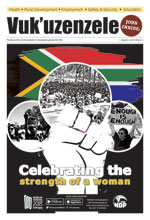
Translations
Jobs - Labour Aug 2018
Jobs - Labour Aug 2018 vuyelwanAssistant Director: COID Statutory Services (3 posts)
Provincial Office: East London-Reference No: HR 4/4/1/180
Provincial Office: KwaZulu-Natal-Reference No: HR 4/4/5/57
Provincial Office: Free State- Ref No: HR 4/4/8/193
Salary: Commencing: R 356 289 per annum
Enquiries:
Adv. LD Mkhonto, Tel: (043) 701 3287
Mr. EM Khambula, Tel: (031) 366 2203
Mrs. A Mantutle, Tel: (051) 051 505 6347
Provincial Office:
Chief Director: Provincial Operations: Private Bag X 9005, East London, 5200
Chief Director: Provincial Operations: PO Box 940, Durban, 4000
Chief Director: Provincial Operations: P O Box 522, Bloemfontein, 9300
Assistant Director: Statutory Services
Centre: Provincial Office: North- West
Reference No: HR 4/4/9/28
Salary: Commencing: R 365 289 per annum
Enquiries: Mr. ABM Mampuru, Tel: (018) 387 8100
Assistant Director – COID
Centre: Rustenburg Labour Centre
Reference No: HR 4/4/9/19
Salary: Commencing: R 444 693 per annum
Enquiries: Mr. T Mokoena, Tel: (018) 387 8100
Provincial Office
Chief Director: Provincial Operations: Private Bag X 2040, Mmabatho, 2735
Deputy Director: COIDA
Centre: Provincial Office: Emalahleni
Reference No: HR 4/4/7/54
Salary: All inclusive: R 826 053 per annum
Enquiries: Ms. LP Magubane, Tel: (013) 655 8748
Deputy Director: Beneficiary Services
Centre: Provincial Office
Reference No: HR 4/4/7/38
Salary: All inclusive: R697 011 per annum
Enquiries: Ms. M Mazibuko, Tel: (013) 655 88701
Provincial Office
The Department of Labour: Private Bag X 7263, Emalahleni, 1035
Counsellor (2 posts)
Labour Centre: Ermelo- Reference No: HR4/4/7/43
Labour Centre: Mkhondo- Reference No: HR4/4/7/44
Salary: OSD
Enquires: Ms. L Mashego. Tel: (017) 819 7632
Provincial Office
Deputy Director: Labour Centre Operations, Private Bag x 9054, Ermelo, 2350
Closing date for applications: 03 September 2018 at 16:00
For full details of the advertised posts visit our website: www.labour.gov.za
Applications must be submitted on form Z83, obtainable from any Public Service Department or on the internet at www.gov.za/documents. The fully completed and signed form Z83 should be accompanied by a recently updated, comprehensive CV as well as recently certified copies of all qualification(s) including a Senior Certificate and ID-document [Driver’s license where applicable]. Non-RSA Citizens/Permanent Resident Permit Holders must attach a copy of their Permanent Residence Permits to their applications. Should you be in possession of a foreign qualification, it must be accompanied by an evaluation certificate from the South African Qualification Authority (SAQA). Applicants who do not comply with the above-mentioned requirements, as well as applications received late, will not be considered. The Department does not accept applications via fax or email. Failure to submit all the requested documents will result in the application not being considered. Correspondence will be limited to short-listed candidates only. If you have not been contacted within eight (8) weeks after the closing date of this advertisement, please accept that your application was unsuccessful. Suitable candidates will be subjected to a personnel suitability check (criminal record, citizenship, credit record checks, qualification verification and employment verification). Where applicable, candidates will be subjected to a skills/knowledge test. All shortlisted candidates for SMS posts will be subjected to a technical competency exercise that intends to test relevant technical elements of the job, the logistics of which be communicated by the Department. Following the interview and technical exercise, the selection panel will recommend candidates to attend generic managerial competencies using the mandated DPSA SMS competency assessment tools. Successful candidates will be appointed on a probation period of 12 months. The Department reserves the right not to make any appointment(s) to the above post. The successful candidate will be expected to sign a performance agreement. The Department of Labour is an equal opportunity affirmative action employer. The employment decision shall be informed by the Employment Equity Plan of the Department. It is the Department’s intention to promote equity (race, gender and disability) through the filling of this post(s) with a candidate whose transfer / promotion / appointment will promote representativity in line with the numerical targets as contained in our Employment Equity Plan.
Sanitary towels made affordable for women
Sanitary towels made affordable for women LondekileWomen's Month
Accessing sanitary towels remains a challenge facing unemployed women and young girls due to affordability.
This is what motivated founders of Kgoshigadi to manufacture Nandi Pads, which are sold the community.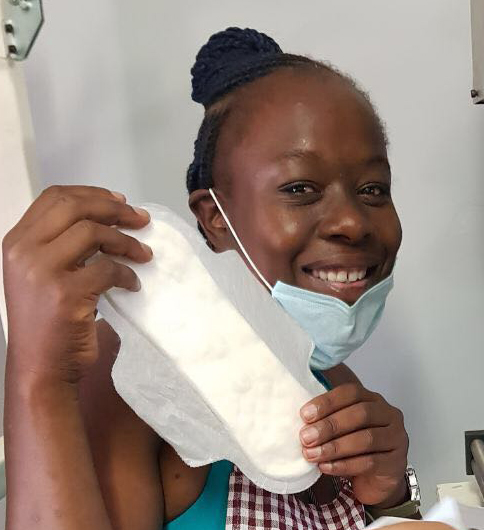
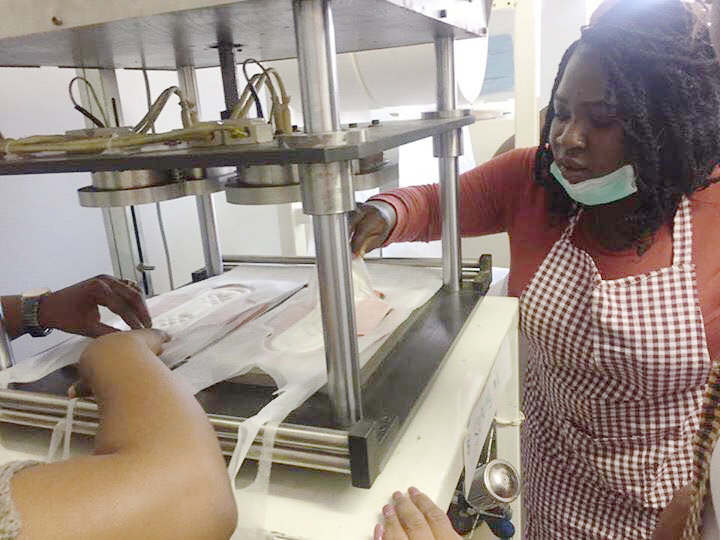
The affordable locally manufactured sanitary are sold at R15 for a packet of nine pads to locals in Soshanguve Pretoria.
As South Africa celebrates Women’s Month this August, Vuk’uzenzele spoke to Jovana Korac to hear how Kgoshigadi was established and the impact it is having on young girls and women in Tshwane.
Korac said their work began as a charity organisation in 2012 where one of the founding members of Kgoshigadi, Tebogo Motubatse collected donations of sanitary pads from friends, family members, community members and corporate sponsors in order to supply school girls and charities in Soshanguve.
In 2017 Kgoshigadi was registered as a social enterprise and transformed its operations in order to deliver a more sustainable solution.
“We realised that affordability was the main issue which affected a lot of women and young girls in a bad way,” she said.
The organisation later received funding from the Innovation Hub and managed to buy machinery from India used to manufacture affordable, disposable and biodegradable sanitary pads at low-cost.
Korac added that the machinery can produce 40 000 biodegradable pads per month.
“Our pads are made using an innovative combination of natural fibres and agricultural waste. This combination is converted into hygienic raw material and guarantees the production of affordable and safe feminine hygiene products that all women can afford,” she explained.
“At the moment, we are only manufacturing from our pilot site in Soshanguve where we have permanently employed about ten women. These women have been trained to manufacture and sell the product,” she added.
She said employees also sell and distribute to locals.
“At Kgoshigadi, we believe there is an all-empowering solution to the realities that women and girls face. We have identified a scalable and sustainable solution to the challenge of the high-cost of access to safe and hygienic sanitary products,” she said.
Aviation now flying high in Gauteng school
Aviation now flying high in Gauteng school tsoanaLearners who have aspirations to join the aviation industry will soon be able to start acquiring suitable skills from as early as Grade 10 in Gauteng.
This is made possible by the Gauteng Department of Education as it has launched the Rhodesfield Engineering School of Specialisation with a focus on aviation.
 Gauteng Education MEC Panyaza Lesufi said he was pleased to unveil another ground-breaking school of specialisation, which is situated close to the OR Tambo International Airport in Kempton Park.
Gauteng Education MEC Panyaza Lesufi said he was pleased to unveil another ground-breaking school of specialisation, which is situated close to the OR Tambo International Airport in Kempton Park.
“The school is one of 29 schools of specialisation, which have been redesigned to address skills shortages to meet the economic demands of Gauteng cities,” said the MEC.
The school, which was previously known Rhodesfield Technical High School,
offers compulsory subjects that include pure mathematics, pure physical science, Engineering and Graphics and Design. It will soon include aviation to its list.
Some of the subjects that the learners at the school enjoy include Mechanical Engineering and Electrical Engineering.
The Acting Principal of the school, Ansie Ras, said she was excited about the launch as the school will make a huge contribution to South Africa’s aviation industry.
“We will be able to supply the aviation industry with learners who are skilled in aviation and who are in a better position to choose careers in aviation,” she said.
“We have partnered with a couple of airlines so that we will be able to take our learners to their technical sites for them to get the experience of the technical aspects of aviation,” she explained.
At the moment the school teaches about 938 learners from Grade 8 to 12, but it has the capacity to teach about 1 300 learners per year.
Ras said admissions into the school for the Grade 8 class is controlled by the Provincial Department of Education through the online application process. Applicants have to be good in mathematics and natural science.
Brics summit gives SA a boost
Brics summit gives SA a boost UrsulaInternational Relations/ Africa News
Five of the world's biggest emerging economies maintained confidence in the multilateral system, and further committing to strengthening economic cooperation
When the curtain fell on the 10th BRICS Summit held in Sandton recently a clear mandate of solidifying trade cooperation and partnership between the five member countries was reaffirmed.
Over 1000 delegates from the member countries - South Africa, Brazil, China and Russia descended on the Sandton Convention Centre over three days. Among the delegates were captains of industry and government leaders.
Closing the summit President Cyril Ramaphosa declared the gathering as having been a major success.
“We as South Africa are very pleased with the way the BRICS summit succeeded in achieving the many objectives we had in mind. It was one of the most well organised summits as articulated by the heads of state from the BRICS countries,” he said.
This much was evident in the list of trade agreements and memoranda entered into over the three days. Among the burning topics that the leaders grappled with was the ongoing trade war waging between the United States (US) and China, which threatened to claim struggling emerging economies as its casualties.
In July US imposed tariffs of 25percent on Chinese imported goods valued at $34 billion. Further levies in products from China as well as tariffs on and aluminium from the EU, Canada and Mexico were imposed.
Five of the world's biggest emerging economies maintained confidence in the multilateral system, and further committing to strengthening economic cooperation in the face of US tariff threats and unilateralism.
“We should stay committed to multilateralism,” said China's President Xi Jinping adding that trade wars should be rejected.
“Economic hegemony should be rejected. Those who pursue that will only hurt themselves, As BRICS, we should be resolute in rejecting unilateralism and protectionism,” said President Xi. 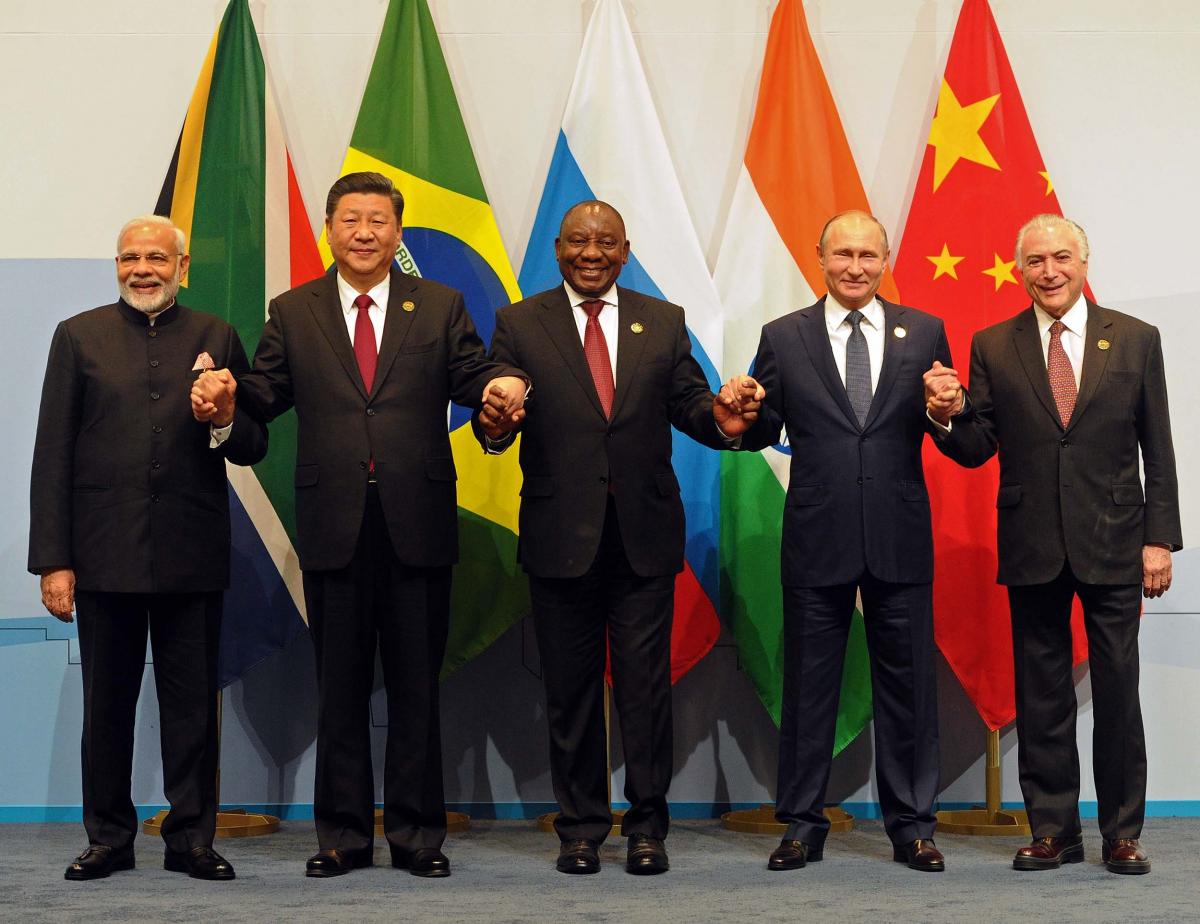
BRICS seal the deal
Among deals sealed BRICS Aviation memorandum of understanding between the five countries. The agreement sought to expand and deepen cooperation among competent authorities in the field from the BRICS countries. Among other things, the cooperation will see the countries share public policies and best practice, with keen focus on airports management, infrastructure, navigation services, innovation as well as pilot training
This agreement will ensure that our country continues to have adequate and highly skilled aviation professionals.
An environmental agreement was also entered into, with each member country committing to the implementation of the 2030 Agenda for Sustainable Development and the 17 Sustainable Development Goals on air quality, water, biodiversity, climate change, waste management.
South Africa’s role of big brother for the rest of the continent was cemented during the Summit with various African leaders making guest appearances as well as trade deals that would benefit some countries. Russia signalled its intention when it penned a memorandum of understanding with Zimbabwe for the production of platinum group metals. Projects are already unfolding in the country.
Trade between the five countries increased significantly over seven years, increasing from R203 billion to R462 billion between 2010 and 2017.
The African Union, the East African Community (EAC), Common Market for Eastern and Southern Africa (COMESA); the Southern African Development Community (SADC); Common Market of the South (MERCOSUR ), South Africa and influential Association of Southeast Asian Nations (ASEAN), the Caribbean Community (CARICOM), as well as the Organisation of Islamic Cooperation (OIC) were just some of organisations invited to various sessions held during the summit and interacted with BRICS.
China state visit
Meanwhile the South African government signed several agreements with China, including an investment commitment from China to the tune of $14.7 billion.
This was during China’s State visit where President Xi and his wife Peng Liyuan visited Pretoria with the idea of boosting bilateral relations and cooperation.
Relations between the two countries date back to January 1998 when ties were first established. Over the past two decades, relations have continued to blossom.
“President Xi Jinping has indicated that China was ready to invest and work with South Africa in various sectors, such as infrastructure development, the ocean economy, the green economy, science and technology, agriculture, environment and finance,” President Ramaphosa said.
The total trade between South Africa and China has been growing since 2009, moving increasing R118 billion to R271 billion by the end of 2013.
CGE offers free legal advice
CGE offers free legal advice tsoanaA Constitutional entity mandated with building a society free from all forms of gender oppression and inequality is within reach of South African women.
Victims of gender-based violence often suffer in silence. They may be unable to pay for legal assistance, too fearful of the consequences of reporting the crime, or uneducated about the government laws in place to protect them.
The Commission for Gender Equality (CGE) reaches thousands of these women, providing free legal advice and education about gender rights, through legal clinics held across the country. 
“The legal clinics educate and inform communities on legislation related to equality and gender equality. They also provide legal advice or make legal aid available to underprivileged people who suffer any form of gender discrimination,” said the head of the CGE’s legal department Marissa van Niekerk.
CGE officers host or conduct the clinics at venues where access by members of the community is easy and convenient.
“Conducting outreach, advocacy and legal advice clinics is the primary way to provide access to justice for people who have experienced any form of gender-related discrimination,” Van Niekerk said.
In the 2017/18 financial year, 162 clinics were hosted across all nine provinces. The clinics also offer a safe space for victims to report gender-based violence and find the assistance they need. Through these clinics, a total of 174 files were opened relating to cases of gender discrimination. Van Niekerk says that the cases ranged from women being discriminated against due to pregnancy, to obtaining domestic violence orders that protect victims from their abusers.
In December 2017, the CGE held an outreach and legal clinic in a rural Limpopo village. A case of Ukuthwala (forceful marriage) had occurred in the area, and a 14-year-old girl was rescued from the clutches of her ‘husband’.
“Anyone is welcome at the clinics. I encourage people who want to attend to contact their provincial CGE offices to find out the dates and areas where the clinics are held. Victims of gender discrimination are also able to make an appointment for a consultation with a CGE officer.”
For more information on how you can access a Commission for Gender Equality clinic in your area call 011 403 7182.
Clinics must be first port of call
Clinics must be first port of call angenithaA referral system is in place to ensure South Africa’s public healthcare system functions optimally.
 Your local clinic must be your first port of call when accessing public healthcare services.
Your local clinic must be your first port of call when accessing public healthcare services.
Free State Health MEC Montsheng Tsiu is of the opinion that too often people go directly to a hospital when in fact they could have been assisted at their local clinic.
She said the first stop for an ill person should be at a primary healthcare facility like a clinic. This will be followed by a referral to a secondary healthcare facility (district hospital) if necessary. In extreme cases, a referral to a regional or tertiary hospital will be given.
MEC Tsiu said clinics are built within local communities so that people can easily access healthcare services. Nurses are trained professionals who are able to assist patients with many illnesses.
“If the nurses have screened you and see that you a need a higher level of care, they will make a referral for you to go to a hospital,” she explained.
“But people still believe that being checked by a doctor is always necessary. They need to know that nurses are trained and able to examine a patient holistically and come up with a treatment plan that suits the level of care needed.”
MEC Tsiu said sometimes people do not first seek help at a clinic but head straight to a tertiary hospital simply because it is located within a local community. She cites Pelonomi Hospital as an example.
“Because everyone has a right to healthcare, we do not turn people away, even when they have not followed the right procedures. This contributes to many of the challenges facing the health sector,” she said.
Cops stand tough against gender-based violence
Cops stand tough against gender-based violence tsoanaDedicated police officers are committed to curtailing South Africa’s unacceptably high rate of rape, child abuse, pornography and domestic violence.
The South African Police Service’s Family Violence, Child Protection and Sexual Offences (FCS) units are making inroads in protecting the vulnerable.
The units are found countrywide.
Dedicated FCS members go beyond the call of duty to ensure that survivors are treated with the utmost care to avoid secondary victimisation.
Between, 1 January and 30 June 2018, the division recorded a sizable number of convictions and lengthy sentences for crimes against women and children, including murder, rape and child pornography.
Two-hundred-and-seventeen life sentences and a combined 11 800 years of imprisonment resulted from 1 385 cases.
The most notable convictions took place in the North West and the Western Cape.
In May 2018, the court in Brits sentenced a 47-year-old man to eight life sentences for raping three children aged 9, 10 and 11. One of the victims is his niece, who fell pregnant.
The Western Cape incident was finalised at the Bellville court.
The FCS’s cyber-crimes unit investigated a case of possession of child pornography, which led to an accused being charged with three counts of rape, four of sexual assault and 12 counts of manufacturing porn, among other related charges.
He was given to three life sentences for rape and 57 years for the other charges. His details have been recorded on the National Register for Sex Offenders.
Police Minister Bheki Cele said these successes are evidence that the police are indeed prioritising crimes against women and children.
National Police Commissioner Khehla Sitole called on victims of gender-based violence to immediately report incidents to the nearest police station or SAPS Crime Stop: 08600 10111.
FCS units will continue to partner with other police units to conduct awareness campaigns throughout the year. These will be intensified during Child Protection Week, Women’s Month and the 16 Days of Activism for No Violence Against Women and Children campaign.
Earth Mother urges women to dig in
Earth Mother urges women to dig in LondekileWomen's Month
During Women’s Month a Cape Town woman will be spreading the food garden message to help alleviate the burden of poverty.
Tenjiwe Kaba from Cape Town is a hero. For the past 30 years, Mama Kaba has been changing the face of townships around Cape Town, turning dusty pieces of land into flourishing vegetable gardens which feed hundreds of people.
Kaba (69) grew up on a farm near Kokstad in the Eastern Cape where her parents worked as farm workers.
“From as young as 14 years old, I went into town every day to sell the farm’s vegetables on the street,” said Kaba.
Although she received little reward for her hard work, the experience established Kaba’s knowledge and passion for vegetables.
When she moved to the township of Khayalitsha in Cape Town in the late 1980s, she realised that she could use her knowledge to improve the terrible living conditions that many were faced with.
“There were many empty pieces of land which were not being used – this precious land was just being wasted. I knew that I could make something out of it.”
With assistance from community organisations and government, Kaba and several other women began growing vegetables on a tiny plot in the township. Over the years, the community garden steadily grew, with fresh vegetables being sold at markets around the township.
“I also wanted to spread this throughout the area, and soon other community members were becoming growers of their own gardens. Today there are more than 30 gardens here, providing the growers with an income and also feeding our communities,” Kaba explained.
Kaba’s original community garden, which became known as Moya we Khaya, which means spirit of home in IsiXhosa, is today a thriving one-hectare garden.
Mama Kaba has also managed to train more than 30 disadvantaged community members to become growers, and her current team comprises eight people.
The grandmother of three has won numerous awards and has been invited to give talks around the world.
But Mama Kaba said that the awards are not what is important.
“What is really important is the message that we can all do something to improve ourselves and others.”
Eggs help entrepreneur crack agriculture
Eggs help entrepreneur crack agriculture LondekileFrom financial administrator to egg producer, a 29-year-old woman has made a sizzling good start as an emerging farmer.
Malesiba Mabitsela has made a cracking good start as an egg entrepreneur after leaving the corporate world to become her own boss.
In following her dream, she left behind a guaranteed pay cheque from the financial institution where she worked, to move back home to Seabe in Mpumalanga.
Initially, she planned to raise chickens but a market demand for eggs saw her shifting gears.
The Egg House officially took off in 2017, with the start-up capital coming from Mabitsela’s R50 000 savings.
“Luckily, I found someone who was willing to partner with me. I had the financial muscle and he had land where we could start the project. The egg business is very lucrative; we are doing so well that we are thinking of expanding our business model.”
The Egg House currently has 200 chickens that lay about 188 eggs per day.
She said the routine for her business includes feeding the chickens at about 8:00, followed by collecting the eggs during mid-morning and again later in the afternoon.
“We also do routine checks on the chickens to ensure that they are getting enough water and that they are not sick.”
Mabitsela supplies her eggs to local shops and also has suppliers who travel from Pretoria to collect eggs to sell.
She added that she would like to expand her business but to do so she will have to recieve additional funding.
“My business is not just about providing for myself and my family. If I received the necessary funding to grow, I would love to sow the seed of farming in my village so that more youngsters will enter the sector.”
She added that she dreams of providing young people with bursaries so that they too can tap into the food growing business.
“Agriculture is fun and exciting; there is so much that one can learn from nature. It calms you and feeds you.”
Fresh mind produces farming success
Fresh mind produces farming success angenithaSambo's energy is giving her family business positive results.
At just 25, Sinethemba Sambo has managed to turn her parent’s farm into a booming business.
Siyavuya Co-operative Limited has livestock, crops and aquaculture and it operates on 20 hectares of land in Steenbok in Mpumalanga.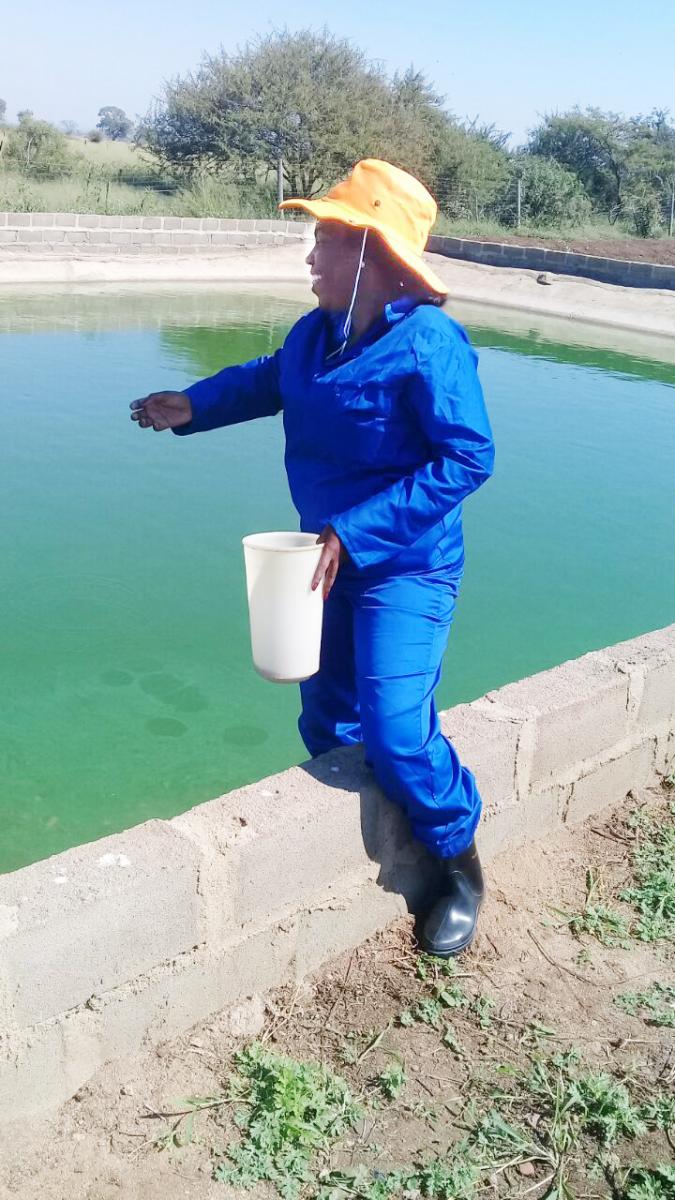
“My parents have decades of experience in farming, they needed a young mind to take their family business to greater heights,” said Sambo.
In 2012 he was also appointed the Managing Director of Siyavuya Co-operative Limited 2012 after completing matric.
“My parents started the farm casually in 1989 and it has been the source of income for their household for as long as I can remember. When I joined the family business I wanted to make sure that it was more profitable.”
She said she was motivated to be part of the family business when she realised that youth unemployment was a serious challenge in the country.
Sambo is also studying towards a Diploma in Business Administration and believes her new skills will help the business to improve over the years.
The business has assets that include 102 cattle, 354 sheep and goats, 34 pigs, 13 poultry houses, 54 beehives, 563 mango trees and five dams for fishing.
Venturing into aquaculture
After venturing into aquaculture in 2012, Siyavuya Co-operative Limited recently won the Fisheries Recognition Award in the small scale category during the Youth in Agriculture, Forestry and Fisheries (YAFF) Awards.
Sambo said winning the award only motivated the company to do better and increase their footprint in the fisheries market.
“The four of our five dams are very large and have the capacity to accommodate about two million fishes each. We produce catfish, tilapias and kappa.”
“We have recently signed a deal with one of the local butchers that sells meat to many communities in Mpumalanga, and we also sell our fish to the locals. Our business is doing well,” she said.
Sambo said the cooperative has so far created employment for 15 permanent workers who rotate in all enterprises on the farm.
Gumede’s grapefruit go global
Gumede’s grapefruit go global LondekileSouth Africa exports around 240 000 tonnes of grapefruit each year. Contributing to this figure is a female farmer from KwaZulu-Natal.
Hard work and dedication were the only ingredients needed for Smangele Gumede from Eshowe to become a successful businesswoman.
Gumede is the owner of the 220-hectare Intathakusa farm situated in Nkwalini, KwaZulu-Natal, which produces grapefruit, oranges, lemons, sugar cane and vegetables. When Gumede started farming in 2007, she had no idea it would one day export her produce.
“Initially, I just wanted something to keep me busy as I was tired of being a housewife. We started as a co-operative with land leased from the Department Agriculture and Rural Development but as time went by, some members opted for livestock farming instead. Eventually, only my husband and I were left.”
Gumede said they worked hard and eventually received R7 million in funding from the department. “We never looked back.”
Her grapefruit and oranges are exported to Japan, Europe and the Middle East. Locally, grapefruit is supplied to a wholesaler in Port Elizabeth, sugar cane is supplied to Tongaat Hulett and vegetables to local stores.
Gumede said that getting into the export market was not easy. “It takes hard work, passion, sacrifice and dedication. You have to produce the best and be able to meet strict food and safety standards,” she said.
In 2017, Gumede entered the provincial Agriculture Female Entrepreneur Awards and she walked away with R125 000 in prize money after being named Female Entrepreneur of the Year.
Gumede employs 28 permanent and 30 seasonal workers. Most of them are women. One of her workers, Siphiwe Khubisa, was named the Best Female Farmworker for 2016 in the same awards.
Gumede’s priority now is acquiring her own packhouse.
How to beat ‘black tax’
How to beat ‘black tax’ UrsulaYou might be a young person who has recently graduated from university or college, your future is bright and you have landed your first job.
The fruits of your labour are not being fully enjoyed thanks to ‘black tax’. ‘Black tax’ is a colloquial term used to describe young black people who share their salary with immediate and extended family while trying to manage their own expenses.
Chief Financial Officer of the Savings Institute, Gerald Mwandimbira, said a family may often have one person who has graduated from university in a well-paying job.
“Black tax sees the person’s salary portioned off to support older parents or an extended family, while trying to raise a young family.”
“This puts one’s responsibilities in a “sandwich” and hence this is often called the sandwich generation. The sandwich generation supports the generation above them, as well as the generation below. Making it difficult for the sandwich generation to save, which will in turn pass this tax down to future generations.”
He added that as a consequence of living above one’s means and supporting extended family, the sandwich generation has little or no savings.
There are ways in which one can start beating the black tax. The most important of these is to live within your means says Mwandimbira.
Signs that you are living above your means:
- You save less than five percent of your net salary
- You spend more on your car than your rent
- You spend more than 30 percent of your salary on a home loan
- You need an overdraft or credit card to survive
- You have unmanageable debt.
“Once you know you are living above your means, you need to adjust your lifestyle with a budget plan that makes you financially secure.”
He said people who live above their means may also need to manage their family’s expectations by allocating what they can spare and also learning to say “no”.
He added that it is important to save even while paying off debt.
Hunger given its marching orders in KwaNyuswa
Hunger given its marching orders in KwaNyuswa LondekileWomen's Month
One woman’s caring has created a self-help project that has been uplifting a rural KwaZulu-Natal community for over a decade.
The desire to care for others prompted Lydia Hlophe from KwaNyuswa in KwaZulu-Natal to quit her job as a domestic worker and start a community upliftment project to help those unable to help themselves.
As a small gesture of kindness, Hlophe began offering hot meals to those with nothing. 
Very soon, she went from feeding 40 people to 200, and in 2010 registered Yenzanathi Community Upliftment Programme as a non-profit organisation.
As a result of Aids and other illnesses, many households in her community are child-headed. In others, elders try and raise their grandchildren as best they can with the little they have.
Hlophe and other community members started a food garden, which supplies the feeding scheme with fresh vegetables.
“Our soup kitchen serves breakfast and lunch but as soon as we get enough sponsors, we will add dinner. At the moment, we are unable to buy food like maize meal and bread and rely on donors,” she said.
In addition to the soup kitchen and vegetable garden, Yenzanathi has lay chickens as well as an internet café that gives younger members of the community access to information.
Eggs and vegetables are sold to raise funds or put towards meals, and the garden serves as a training ground for the development of subsistence farmers.
The internet café was started when the Department of Social Development donated a refurbished container with computers, fax machines, printers and copiers.
Soccer as a way of keeping children off the streets is another of Yenzanathi’s projects and Hlophe and her team have managed to source soccer kits for Under 12, 15 and 19 teams. The boys also benefit from the soup kitchen and are helped with their homework at the centre.
Hlophe said that funding remains an ongoing challenge. “Sponsors come and go,” she said, appealing to private and public entities to come and see the work being done by Yenzanathi.
Jobs - Public Service and Administration Aug 2018
Jobs - Public Service and Administration Aug 2018 vuyelwanDeputy Director-General: Employment Of Conditions Of Service (Previously Named Labour) Ref No: DPSA/011
Salary: An inclusive structured package of R1 370 973.00 per annum at level 15. An annual progression up to a maximum salary of R1 544 406.00 is possible subject to satisfactory performance. The all-inclusive package consists of a Basic Salary, the State’s contribution to the Government Employee Pension Fund and a flexible portion that may be structured according to your needs within a framework.
Purpose: The role of this executive management position in the Employment of Conditions of Service branch is to maintain an affordable Public Service Wage Bill through informed compensable job worth and comparable employment conditions of service whilst ensuring a professional and disciplined workforce with requisite developed technical and specialist skills and enhanced capabilities.
Centre: Pretoria
Requirements: An appropriate SAQA recognised undergraduate qualification and a post graduate qualification (at NQF 8), in either Economics, Labour Law, Public Administration, Social Science, Business Management, Human Resources or Finance, At least a minimum 8-10 years appropriate experience at a Senior Management Level with demonstrable strengths in managing complex environments, Being able to communicate effectively with excellent people management skills, balanced with demonstrable requisite technical skills, Knowledge of the Government legislative framework, Public Service legislative and Policy Framework, Government Medium Term Strategic Framework linked to the National Development Plan, Advanced knowledge of public policy analysis and policy development process, Stakeholder management and coordination, Strategic thinking and leadership, Research skills, Financial Management and Human Resource Management, A person with excellent people management skills who can communicate effectively with all employees and principals alike.
Duties: Managing the Public Service Collective Bargaining environment focusing on managing employment relations, conditions of service, discipline policies, grievance and dispute resolution management systems, as well as, PS job grading and evaluation systems. Support the interpretation of collective agreements into employment practices, as well as, input into other legislative employment practices, Development of Negotiation Frameworks with other key stakeholders in Government, Provide Secretariat functions to the Ministerial Mandating Committee, Manage the branch and its deliverables against the expected Annual Targets and Projects, Provide strategic leadership for effective and efficient management of the branch, Conduct ongoing research on trends and analysis of salary payment systems and benefits.
Enquiries: Ms.Linda Dludla, tel. no (012) 336 1282
Chief Director: Labour Relations, Negotiations and Discipline Management Ref. DPSA/18/012
SALARY: All-inclusive package of R1 127 334.00 per annum (Level 14). An annual pay progression up to a maximum salary of R1 347 879.00 is possible, subject to satisfactory performance. The all-inclusive remuneration package consists of a basic salary, the State’s contribution to the Government Employees Pension Fund and a flexible portion that may be structured according to personal needs within the SMS framework.
Centre: Pretoria
Requirement: An appropriate B degree or equivalent qualification at NQF level 7 in Labour Law or Human Resource Management, A postgraduate qualification in Labour Relations/Labour Law/Human Resource Management/ would be added advantages, At least 5 years’ appropriate experience at Senior Management level is a prerequisite, Sound knowledge of the Public Service legislative framework, collective bargaining processes and structures, Extensive experience in the collective bargaining and labour relations environment, Highly developed negotiation, stakeholder management, as well as written and verbal communication, analytical, research, problem-solving, conflict management and policy development skills, The ability to interpret and communicate complex strategic matters, Conversant with Public Service negotiation and conditions of service frameworks, Strong leadership qualities and the ability to work in a collaborative environment with key stakeholder departments, including National Treasury, as well as social partners, Computer literacy, Financial and people management skills, A valid driver’s licence.
Duties: Develop, implement, monitor and review policies on negotiations, labour relations, including discipline management, for the Public Service, Lead the State as Employer in negotiating salaries and other conditions of service in the Public Service Coordinating Bargaining Council (PSCBC), Lead the State as Employer in the preparation of and securing the necessary mandates for negotiations on matters of mutual interest from the Minister for the Public Service and Administration (MPSA) and the Committee of Ministers, Develop and advise on negotiations strategies and approaches aimed at advancing the interests of the State as Employer, Promote sound labour relations in the Public Service Monitor progress in the various sectoral and departmental bargaining structures, Ensure, monitor and report to the MPSA on the implementation of collective agreements reached in the PSCBC and the General Public Service Sector Bargaining Council (GPSSBC), Advise the MPSA and Director-General on collective bargaining and labour relations matters, Manage projects in the Chief Directorate, Ensure representation of the State as Employer in the governance and ad hoc committees of the PSCBC and GPSSBC, Ensure people and financial management of the Chief Directorate.
Enquiries: Ms. Linda Dludla, tel. no (012) 336 1282
It is the intention to promote representivity in the Department through the filling of these positions. The candidature of applicants from designated groups especially in respect of people with disabilities will receive preference.
Closing Date: 21 August 2018
Application: Applications quoting reference number must be addressed to Mr Thabang Ntsiko. Applications must be posted to Department of Public Service and Administration, Private Bag X916, PRETORIA, 0001 or delivered 546 Edmond Street, Batho Pele House, cnr Edmond and Hamilton Street, Pretoria, Arcadia 0083. Faxed and emailed applications will not be considered.
Note: All short-listed candidates for SMS posts will be subjected to a technical exercise that intend to test relevant technical elements of the job, the logistics of which will be communicated by the department. Following the interview and the technical exercise, the selection panel will recommend candidates to attend a generic managerial competency assessment (in compliance with the DPSA Directive on the implementation of the competency-based assessment). The competency assessment will be testing generic managerial competencies using the mandated DPSA SMS competency assessment tools.
The successful candidate will have to sign an annual performance agreement, submit financial disclosure and will be required to undergo a security clearance. Applications must be submitted on form Z.83 accompanied by certified copies of qualification(s), Identity Document (certified within the past 06 months). Proof of citizenship if not RSA citizen, a comprehensive CV indicating duration of appropriate experience and three reference persons with the following information: name and contact numbers and indication of the capacity in which the reference is known to the candidate. Reference checks will be done during the selection process. Failure to submit these copies will result in the application not being considered. Note that correspondence will only be conducted with the short-listed candidates. If you have not been contacted within three (3) months of the closing date of the advertisement, please accept that your application was unsuccessful. Applicants must note that further checks will be conducted once they are short-listed and that their appointment is subject to positive outcomes on these checks, which include security screening, security vetting, qualification verification and criminal records.
Jobs: Correctional Services Aug 2018
Jobs: Correctional Services Aug 2018 vuyelwanAppointments under the Correctional Services Act
DD: Head Correctional Centre: Tswelopele (CB6)
FS & NC Region: Tswelopele (FSNC18/01/01)
Salary: R763 965 all-inclusive package
ASD: Inspectorate [NCB3]
FS & NC Region: Regional Office (FSNC18/01/04)
Salary: R348 231 per annum
SCO: Head Of Community Corrections [CB4]
FS & NC Region: Qwaqwa (FSNC18/01/06)
Salary: R338 085 per annum
ASD: Head Correctional Centre x 2 [CB5]
FS & NC Region: Bethlehem (FSNC18/01/02), Kuruman (FSNC18/01/03)
Salary: R403 692 per annum
SCO: Head Correctional Centre [CB4]
FS & NC Region: Wepener (FSNC18/01/05)
Salary: R338 085 per annum
SCO: Chairperson: Case Management Committee [CB4]
FS & NC Region: Kuruman (FSNC18/01/07)
Salary: R338 085 per annum
Appointments under the Public Service Act
DD: Area Coordinator: Finance And Supply Chain
FS & NC Region: AC Upington (FSNC18/01/08)
Salary: An all-inclusive package of R657 558 per annum
Closing Date: 2018 August 24 @ 15h45
Note: Before you apply: All costs associated with an application will be borne by the applicant. The Department of Correctional Services is an equal opportunity employer. The Department will take into consideration the objectives of Section 195 (1) (i) of the Constitution of the Republic of South Africa, 1996 (Act 108 of 1996) and the Employment Equity Act, 1998 (Act 55 of 1998) in filling of these vacancies. It is our intention to promote representivity in respect of race, gender and disability through the filling of these positions. In support of this strategy, applicants need to indicate race, gender and disability status on the application form/CV. Applicants who have retired from the Public Service with a specific determination that they cannot be re-appointed or have been declared medically unfit will not be considered.
Please take note that correspondence will only be conducted with the shortlisted candidates. If you have not been contacted within three (3) months of the closing date of the advertisement, please accept that your application is unsuccessful.
Applicants must note that further checks will be conducted once they are shortlisted and that their appointment is subject to positive outcomes on these checks, which include security clearance, security vetting, qualification verification, and criminal records verification. Appointment to some of these posts will be provisional, pending the issue of a security clearance. If you cannot get a security clearance, your appointment will be re-considered/possibly terminated. Finger prints may be taken on the day of interviews.
The Department of Correctional Services reserves the right not to fill any of these advertised posts.
Applications: Applications must be submitted on form Z83 (Public Service Application form), obtainable from any Public Service Department, and must be completed in full. Applications must be accompanied by a CV, certified copies of qualifications and ID NOT older than 3 months. Where an advertisement states that a valid Driver’s Licence is required, then please submit a certified copy of your licence. Please send a separate and complete application for each post you apply for, stating the correct reference for each position you are interested in. Faxed and e-mailed applications will not be accepted Candidates must comply with the minimum appointment requirements CV’s should be aligned to reflect one’s degree of compliance with the above-mentioned requirements and responsibilities. Applications must reach DCS before the closing date and time. It is the sole responsibility of an applicant to ensure that their application reaches DCS before the stipulated closing date and time.
NB: Indicate the reference number and position you are applying for on your application form (Z83) and post your complete application to the address as indicated below:
Free State/Northern Cape Region:
Postal Address: Head Recruitment, Private Bag X20530, Bloemfontein, 9300
Contact person: Ms. Mkuni NJ & Mr. Jansen JS at 051 404 0270 or 051 4040283
Physical Address: 103 Zastron Street, Agrimed Building, Bloemfontein
For the requirements to apply for these positions please visit the DCS Web: www.dcs.gov.za and check under Vacancies.
Jobs: Public Protector South Africa Aug 2018
Jobs: Public Protector South Africa Aug 2018 vuyelwanSenior Manager: Financial Management
Location: Head Office, Pretoria | Ref: PPSA 01/08/2018
Requirements: •A SAQA recognised Bachelor’s degree (NQF Level 7) in the field of Accounting, Finance and Auditing •A minimum of 8 years relevant experience of which at least 5 years should have been at middle management •Extensive practical experience in the compilation, analysis and interpretation of financial statements in compliance to GRAP, PFMA, Treasury Regulations and National Treasury Practice Notes •Working with auditors on all aspects of financial statement auditing •Budgeting and payroll management •Knowledge of the Public Service •Computer literacy and working knowledge of Caseware, SAP and MS Packages. Knowledge: •Government legal framework and leadership •Programme and project management •Financial management •Change management and transformation •Knowledge management •Service Delivery Innovation •Problem solving skills •Excellent knowledge of interpreting concepts into operational activities •In depth knowledge, understanding and application of GRAP, PFMA, Treasury Regulations and National Treasury Practice Notes. Skills: •Excellent business communication skills •Networking skills •Report writing skills •Strategic planning •Policy formulation •Excellent computer literacy •Good analytical and interpersonal skills •Conceptualising and coordination skills •Planning and organising skills •Excellent presentation and facilitation skills •Excellent negotiation and persuasion skills •Excellent time management skills •Excellent interpersonal skills •Ability to relate at all levels within the organisation •Excellent analytical, interpretive and logical thinking, planning and decision making abilities.
Duties: Reporting directly to the CFO, the incumbent will be required to perform the following core functions: •Management of the financial reporting process (interim financial statements and annual financial statements) •Participate in all governance structures/committees •Establishing, implementing and monitoring financial management and internal controls to ensure/B0 compliance with internal policies, GRAP, prescribed legislation in terms of the Public Finance Management Act (PFMA) and Treasury Regulations and National Treasury Practice Notes •Managing the budget of the Public Protector South Africa and ensuring compliance to timelines on submission of the Medium Term Expenditure Framework (MTEF), Adjusted Estimates of National Expenditure (AENE) and Estimates of National Expenditure (ENE) •Management of all reconciliations •Ensure compliance to income tax laws •Manage the organisational payroll •Monitor revenue classification and reconciliation for submission to National Treasury •Consolidation of drawings against the budget and ensure correct drawings on a monthly basis •Development and maintenance of financial management policies •Managing and resolving internal and external audit queries •Providing effective leadership, mentorship and management of staff within the Financial Management unit.
Enquiries: Mr S. Maredi / Mr T. Khunou
Tel. (012) 366 7146 / 7111.
Closing Date: 24 August 2018
Note: All appointments will be done in terms of the Public Protector Act and a 6 month probation period which may be extended to 12 months will be applicable. The successful candidate will be expected to sign a secrecy declaration form and performance agreement within 3 months of accepting the position.
All successful candidates will have to undergo security clearance. Vetting and competency assessments will be conducted.
The office reserves the right not to fill the vacancy. Correspondence will be limited to shortlisted candidates only. Should you not be contacted within 3 months, please consider your application as unsuccessful.
Applications must be accompanied by a covering letter with a detailed CV and 3 references (including certified copies of qualifications and ID document). The Public Protector South Africa is an equal opportunity, affirmative action employer and is committed to the achievement and maintenance of representivity (race, gender and disability). Preference will be given to the candidates whose appointment or promotion meets the requirements for Employment Equity representivity in the Office and those residing in the respective Province that the post is located. People with Disabilities; Coloured and Indian candidates; and Females will be given preference.
Please send your application, stating the relevant reference number to: Applications@ pprotect.org or hand-deliver to: Public Protector House, 175 Lunnon Road, Hillcrest Office Park, Hillcrest, Pretoria.
Limpopo Health takes breastfeeding to new heights
Limpopo Health takes breastfeeding to new heights JoyBreastfeeding is optimal for child health development and nutrition of infants but most working mothers find it difficult to continue the practice when they return from maternity leave.
This is because there are no suitable spaces at most workplaces for new mothers to express or breastfeed their children during working hours, and they become discouraged to continue breastfeeding because they spend most of the day at work without their babies.
In an effort to address this challenge, the Limpopo Department of Health has launched the first ever breastfeeding and expressing room within its offices.
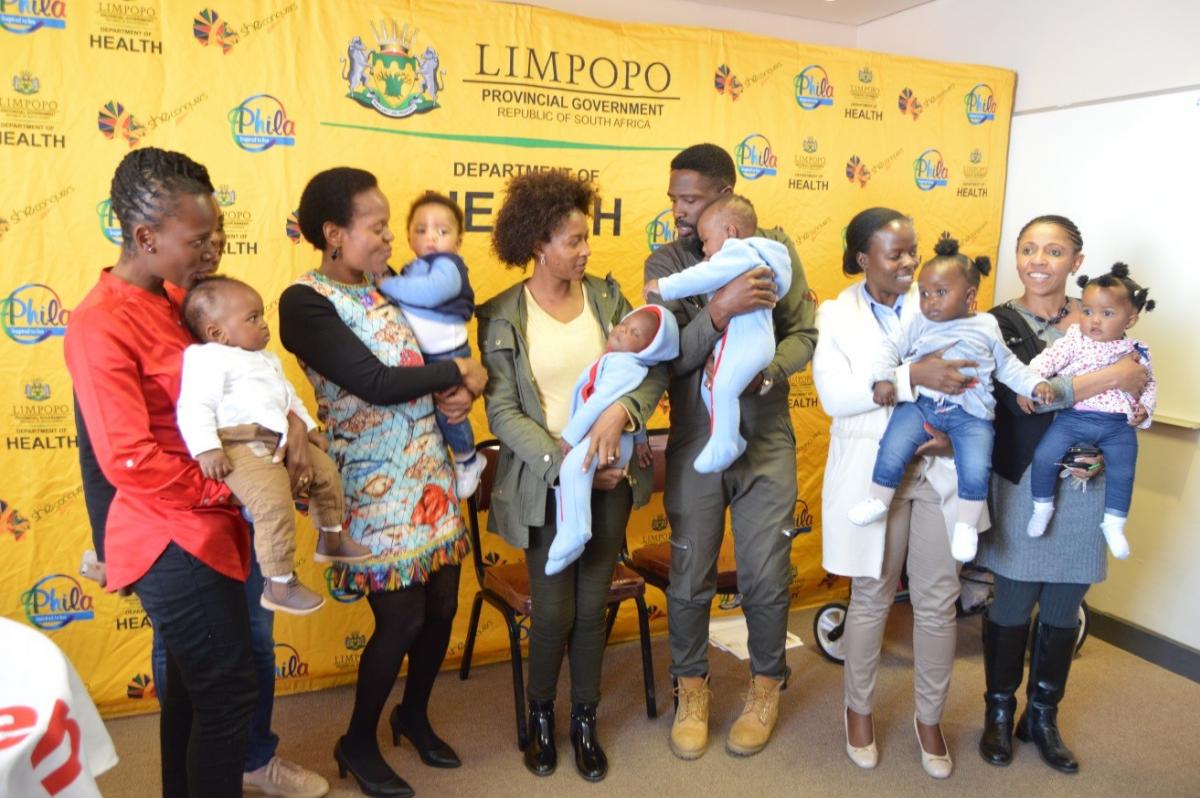 The breastfeeding room was launched by MEC Dr Phophi Ramathuba, as part of the World Breastfeeding Week and Women’s Month.
The breastfeeding room was launched by MEC Dr Phophi Ramathuba, as part of the World Breastfeeding Week and Women’s Month.
World Breastfeeding Week is celebrated globally between 1 and 7 August every year to encourage breastfeeding and improve the health of babies around the world.
The room is named after Mama Albertina Sisulu whose centenary is also celebrated this year.
It is hoped that the room will not only support working breastfeeding mothers, but also encourage other departments to support breastfeeding women in the workplace.
Employees at the department can also have baby-minders bring their babies at work during lunch time for breastfeeding. The room will also be used by mothers who want to express during working hours.
One of the department’s employees Mpho Kutumela and mother of 11-months-old twins, a boy and girl, is excited about the facility.
“The breastfeeding room will come in handy to us as mothers because it will also afford us the opportunity to express our breast milk freely in a conducive environment,” she said.
Mothers who visit the department with their babies for any reason will also be allowed to use the room to breastfeed their children.
MEC Ramathuba said the Albertina Sisulu Breastfeeding room is one of a kind in the province.
The MEC hopes that this initiative will contribute towards the promotion and protection of exclusive breastfeeding practices with the aim of achieving optimal child health development.
“Breast milk contains all nutrients needed by infants and cannot be reproduced artificially,” said the MEC.
Ma Sisulu - a true heroine
Ma Sisulu - a true heroine tsoanaFrom the Union Buildings
As South Africa celebrates the centenary of Albertina Sisulu, a great daughter of the African soil and leader of our liberation Struggle, it is befitting that we use Women’s Month 2018 to reflect on and honour the sacrifices that she made for the liberation of our country.
Ma Sisulu, also known as a ‘Mother of the Nation’ was a pioneer and political activist who gave true meaning to the term Mbokodo.
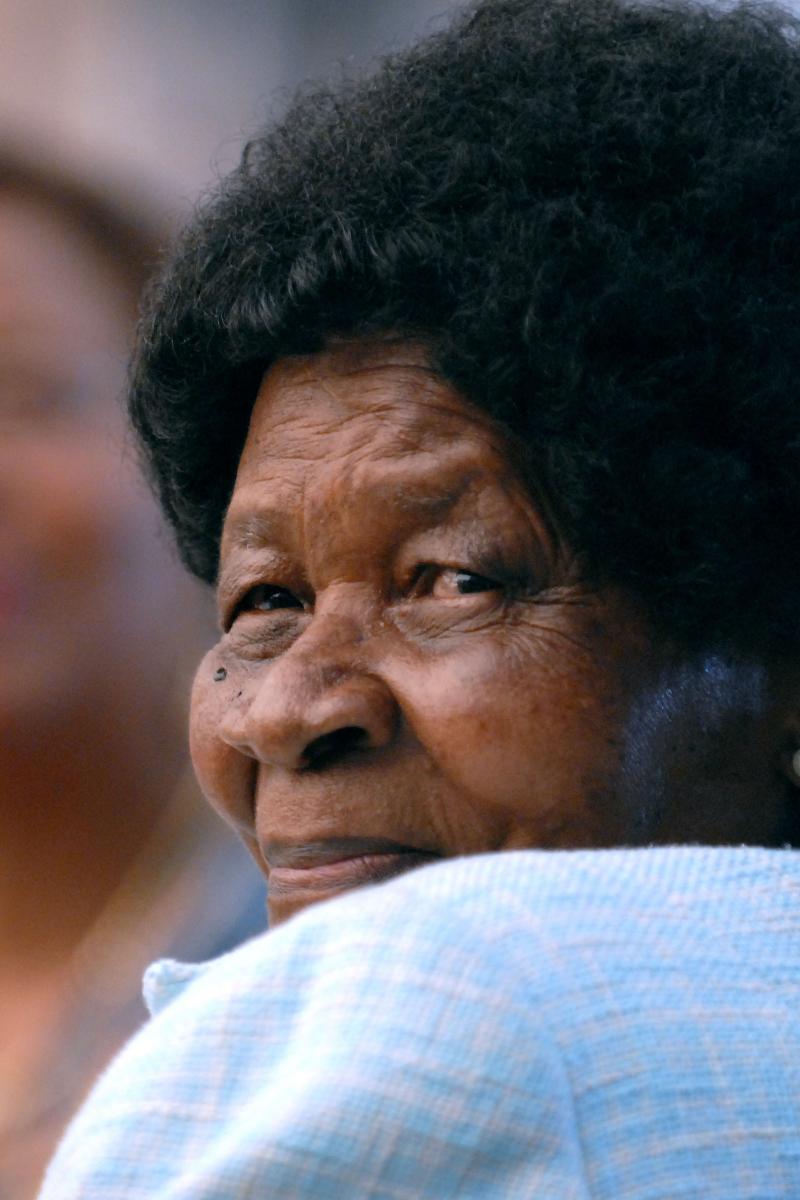 In South Africa the term Mbokodo represents bravery, strength and leadership, among others. In the context of the role and status of women in South African society, Mbokodo is most strongly associated with the defiant bravery of the more than 20 000 women who on 9 August 1956 marched to the then oppressive Union Buildings to make their voices heard against the apartheid law of carrying a pass.
In South Africa the term Mbokodo represents bravery, strength and leadership, among others. In the context of the role and status of women in South African society, Mbokodo is most strongly associated with the defiant bravery of the more than 20 000 women who on 9 August 1956 marched to the then oppressive Union Buildings to make their voices heard against the apartheid law of carrying a pass.
Their Struggle cry - ‘Wathint' abafazi, wathint' imbokodo' (You Strike a Woman, You Strike a Rock) - has come to represent the courage and strength of South African women.
Ma Sisulu, who also marched to the Union Buildings in 1956, was a true Mbokodo who was known to be a matriarch in character but also a compassionate leader.
She was unwavering in her resilience, courage and advancement of democracy and equality.
We must hold tight to the teachings and memories of her unselfish concern for the wellbeing and future prosperity and stability of our country. Through Ma Sisulu, the nation had the privilege of witnessing hard work, discipline and leadership excellence.
In her various public roles, she always sought to bring hope and dignity to the people and communities she served. Whether as a parliamentarian, a member of the NEC of the ANC, or as a nurse who protected those under her care - at her core was the mission to change lives.
Ma Sisulu was born to Monica and Bonilizwe Thethiwe on 21 October 1918 bringing great joy to her parents and grandmother.
Within her extended family she was the eldest of eight girls and it was her responsibility to take care of the younger girls.
Even from a young age she showed strong maternal instincts, and this continued throughout her life. Her leadership qualities and maternal instincts underlined the respect she earned during the Struggle.
In 1936 Ma Sisulu left her home of Xolobe for Mariazell College in Matatiele in the Eastern Cape to further her high school education.
In 1940 she was accepted as a trainee nurse at Johannesburg General Hospital. Six months into her training she witnessed racism for the first time against black patients who were admitted to the hospital after a horrific accident at Park Station, Johannesburg’s central bus and train terminus.
The accident victims were flooding into the hospital. The Non-European section of the hospital was swamped with patients and the senior black medical staff appealed to the hospital authorities to allow black patients to be treated in the “European” wards but the white authorities would not grant permission. Injured patients were forced to sleep on the floor.
This clinical inhumanity had a profound effect on Ma Sisulu.
Her introduction to politics was directly linked to her relationship with her husband Walter Sisulu whom she met in 1941.
Walter Sisulu was himself a leading light of the mass democratic movement, whose distinguished service in the cause for liberation not only included sharing a law practice with Nelson Mandela, but also sharing Robben Island with a comrade who would later become our first democratically elected President.
The Sisulus had five children, most of whom went on to play leading roles in various sectors of our society. Ma Sisulu was therefore, a gift to our nation who kept on giving.
Their house in Orlando, Soweto, was always busy with visitors constantly moving in and out, many of whom were prominent political leaders.
It was with Walter that Ma Sisulu attended the first conference of the ANC Youth League where she was the only woman present.
In 1948 she joined the ANC Women’s League and in the 1950s assumed a leadership role – both in the ANC and in the Federation of South African Women (FEDSAW).
She became the first woman to be arrested under the General Laws Amendment Act. The Act gave the police the power to hold suspects in detention for 90 days without being charged.
From 1958 onwards, she was in and out of jail for her activism and in 1964, she was banned for five years which meant that she couldn’t attend gatherings or go near courts and educational centres. She was also sentenced to 10 years house arrest.
Walter was released in 1989 so Ma Sisulu finally had her husband back and eventually, both became Members of Parliament in 1994.
In 2003 Walter Sisulu collapsed and died in Ma Sisulu’s arms. Ma Sisulu herself was laid to rest in June of 2011.
As a woman, she fought when it was not fashionable to do so and did it with bravery. We will always remember her as a fearless woman who made unimaginable sacrifices for a better and more equitable South Africa. As we mark Women’s Month, we acknowledge that her bravery and humanity delivered a better South Africa, not just for women, but also for men.
Mama Sisulu’s centenary celebrations will run for the rest of the year. Let us use the time to recommit to the principles of nation building that she fought for to liberate all South Africans.
Malibongwe!
Minister puts women in the game
Minister puts women in the game lebangGender equality in South Africa’s sporting codes is gaining momentum.
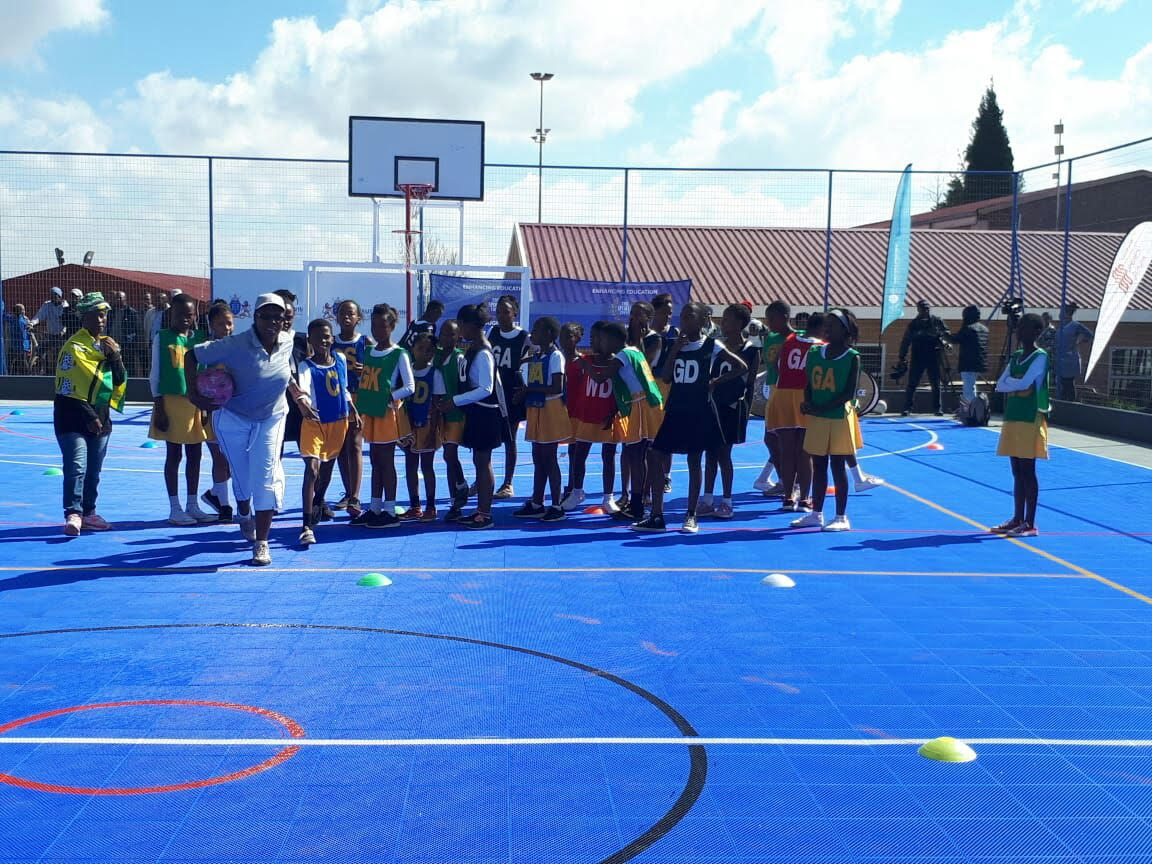 This Women’s Month, the new Minister of Sport and Recreation Tokozile Xasa would like to see women coming into their own in the sports arena.
This Women’s Month, the new Minister of Sport and Recreation Tokozile Xasa would like to see women coming into their own in the sports arena.
Minister Xasa is the first woman to become Minister of Sport and Recreation said that while sportswomen do not get the support they should, things are gradually improving. This is partly thanks to the 2011 Transformation Charter that seeks to provide equitable access in all areas and at all levels of sport to the majority of South Africans, irrespective of gender.
She added that that women representation at board level had improved, with seven out of 19 federations having reported female representation in the boardroom.
She explained that women need to take their rightful place as competitors, coaches and administrators.
“It is my intention to ensure that women who participate in sport are given equal opportunities.”
The minister also mentioned that women’s sports coverage in the media is poor and contributes to the lack of societal support for women in sport.
“For instance, Banyana Banyana have been doing very well but they do not get as much coverage as male soccer teams,” she said, adding that she hope Team South Africa is well supported in the Under 17 Women’s World Cup 2018 which is set to kick off on 13 November and end on 1 December.
Minister Xasa said that a ‘Women in Sport’ policy is being developed and the first draft should be ready by December. This is aimed at levelling the playing field for women in sport.
While serious sportswomen deserve the same opportunities as their male counterparts, Minister Xasa maintains that everyone should participate in a physical activity to stay healthy.
Over and above developing the ‘Women in Sport’ policy, the minister said her department has plans to improve sport infrastructure across the country, especially in rural areas.
“We will be rolling out 60 more facilities in the 2018/19 financial year,” she said, explaining that she hoped to secure direct funding from the Municipal Infrastructure Grant to ensure that more money is channelled into sports infrastructure.
Molawa breaks gender barriers
Molawa breaks gender barriers UrsulaStereotypes and limitations have no place in the Air Force especially with a woman in command.
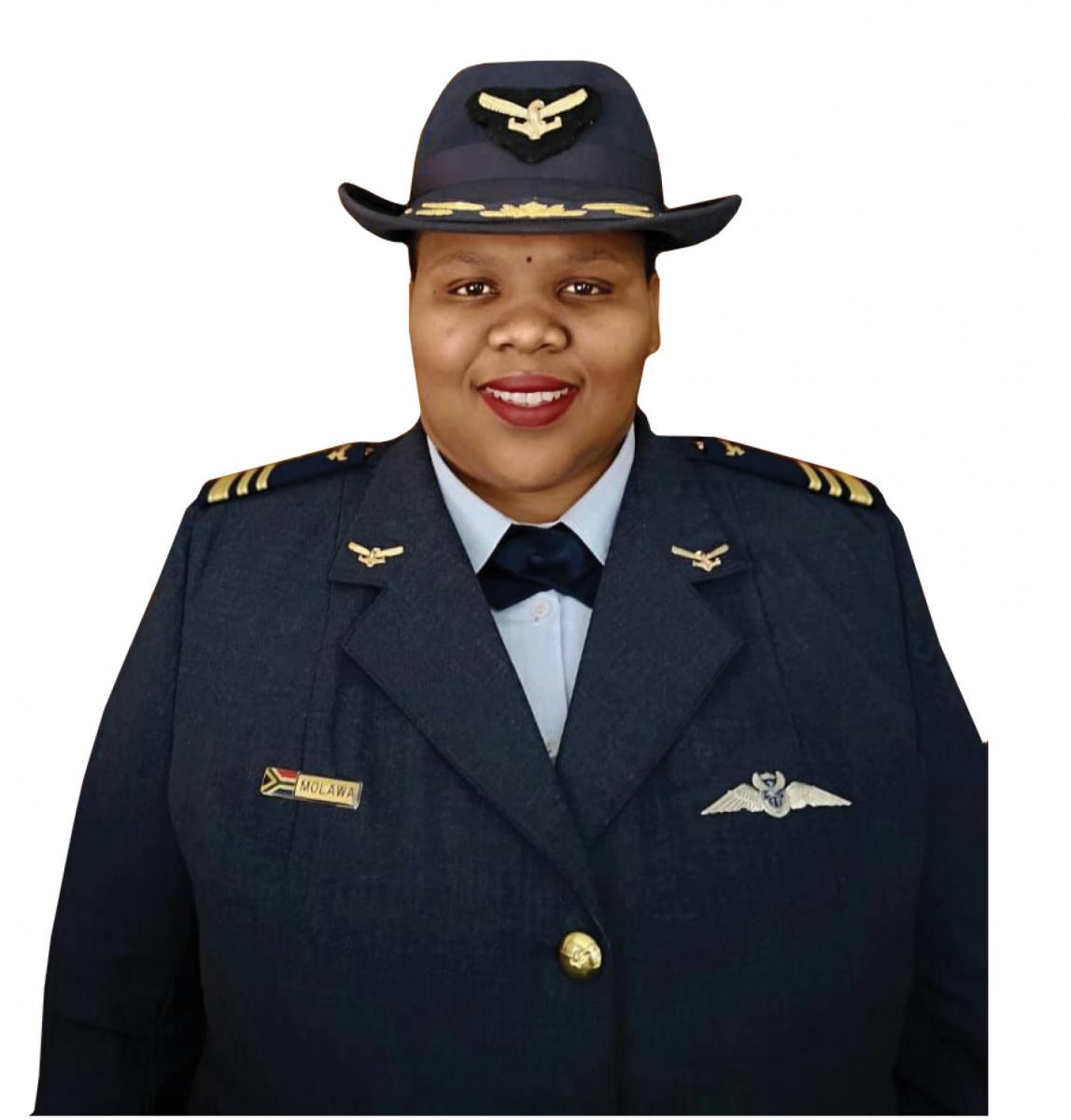 At 32 years of age, Lieutenant-Colonel Phetogo Molawa has already broken through gender and age barriers in a career realm perceived to be masculine.
At 32 years of age, Lieutenant-Colonel Phetogo Molawa has already broken through gender and age barriers in a career realm perceived to be masculine.
Lt Col Molawa is the first black person to command a South African Air Force (SAAF) installation. She considers this one of her career highlights, with the first highlight qualifying as the first female helicopter pilot in the SAAF at the tender age of 21. Today she manages over 100 people at the Port Elizabeth Air Force Base, situated a stone’s throw away from the airport with which it shares a runway.
Lt Col Molawa has a quiet strength about her. She describes herself as someone who does not rest in comfort zones and thrives on challenges.
“My promotion to commander of this air force base came at a perfect time because I was starting to feel that I’d learned all that I could as a helicopter pilot. I was ready for the next challenge,” she said.
Her role requires a wide range of skills, from managing logistics to engaging stakeholders such as the National Sea Rescue Institute (NSRI) and dealing with VIP and VVIP transfers.
“My role requires interaction with stakeholders, what our service-level agreements entail and what we offer. I have to know how our stakeholders operate in order to know what we can offer them. It’s a very steep learning curve for me,” she said.
Some of her interactions are with the navy and the army, she explained. “Most of the operations are SAAF operations, in terms of what we are mandated to do. We work with the NSRI for emergency situations and we liaise with the army and the navy.”
Barrier-breaking achievements
Although Lt Col Molawa’s career has been characterised by a series of barrier-breaking achievements, she said rising up the ladder is within anyone’s reach, regardless of gender or race.
“Apparently I am the first black female to command an air force base. In the air force, from the beginning, we are not treated differently. We all do the same army training, the same pilot training, we don’t get special treatment,” pointed out Lt Col Molawa.
She highlighted the simple truth that gender stereotypes and limitations have no place in the air force or the army.
Lt Col Molawa acknowledged that there were challenges in commanding people who come from different backgrounds.
“I’ve only ever worked with men for the most part and so I’ve learned to handle the challenges that come with working with men. But throughout my career in the air force, I’ve been prepared for that,” she said.
Mother tongue magic at work
Mother tongue magic at work UrsulaA literacy project that promotes home language reading has started a new chapter of learning in the Eastern Cape.
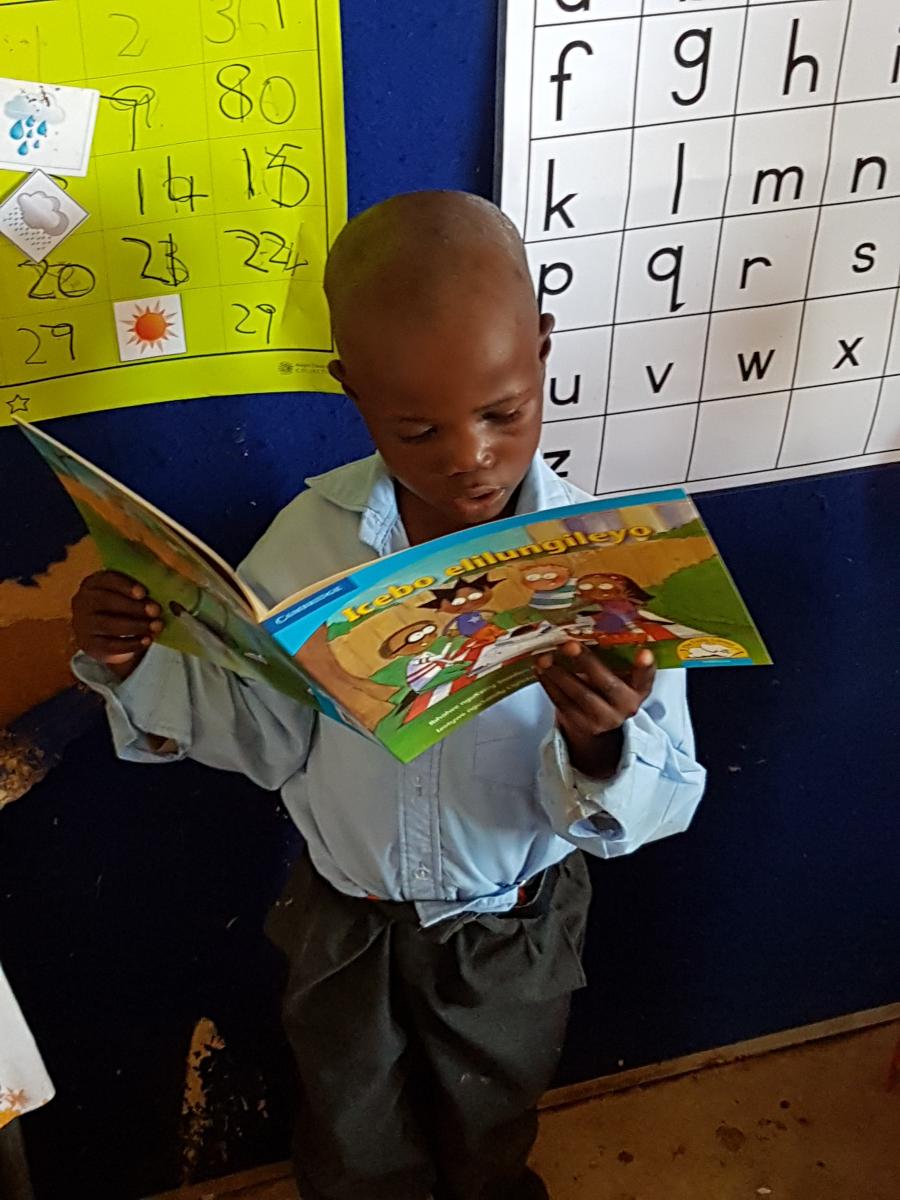 UNICEF South Africa and the Nelson Mandela Institute for Rural Development (NMIRD) are working magic in a rural part of South Africa.
UNICEF South Africa and the Nelson Mandela Institute for Rural Development (NMIRD) are working magic in a rural part of South Africa.
They launched the Bilingual Interactive Differentiated Classrooms programme in the Eastern Cape in 2007. Also known as the ‘magic classroom collective’, the underlying premise of this initiative is that teaching should be engaging, diverse and fully grounded in its local context. In the case of the Eastern Cape, this means promoting learning in Xhosa, the majority language in the province.
Between 2013 and 2017, UNICEF South Africa contributed about R14 million to the NMIRD. According to UNICEF there has been an improvement at both the numeracy and literacy levels of Grade R learners since the inception of the programme over a decade ago.
Fifty kilometres from the town of Bizana in rural Eastern Cape, lies Dlangezwa Senior Primary School. The school has 178 learners from Grade R to Grade 7 and the NMIRD has worked with this school since 2009 with a focus on Grades R to 3 learners.
Principal Zamuxolo Mdatya credited it with helping him and his teaching staff realise that the foundation phase of teaching is critical to a child’s development.
Six-year old Thobela Bhoyoyo is an inspiring example of a learner who has benefitted from the programme. This Grade R learner is a confident reader who, according to his teachers, understands the text at a level above that of most Grade 6 learners.
The Bilingual Interactive Differentiated Classrooms programme made books the focus of his learning and improved his reading ability. Bhoyo said he loves seeing the words in his home language of Xhosa. He added that he wants to be a teacher when he grows up and recounted proudly how much his friends like it when he reads to them.
New health centre for Port Nolloth
New health centre for Port Nolloth lebangThe seaside town of Port Nolloth in the Northern Cape will soon benefit from a full-service community health centre project which promises to enhance access to quality healthcare.
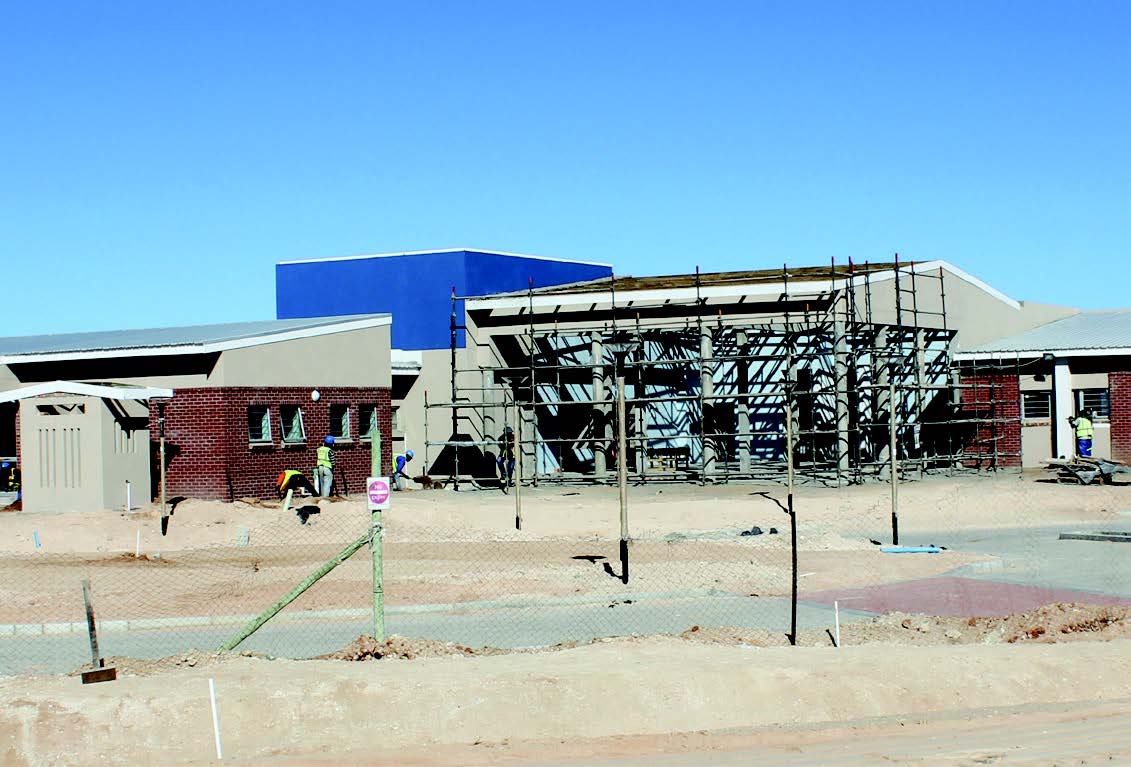 The project is being implemented by the Independent Development Trust (IDT) on behalf of the Northern Cape provincial Department of Health at a cost of about R150 million and is expected to open soon.
The project is being implemented by the Independent Development Trust (IDT) on behalf of the Northern Cape provincial Department of Health at a cost of about R150 million and is expected to open soon.
Once completed, the building will comprise all primary health facilities including a trauma unit, radiology, dispensary, psychiatric ward, maternity wards and paediatric wards. Consultation rooms will be used for reproductive health services, a psychologist, dietician and other services once constructed.
Work on site also encompasses the construction of facilities for support services including administration and waiting areas, ambulance quarters and parking bays, overnight accommodation for paediatric mothers, a mortuary, kitchen and dining area, stores and maintenance area.
Port Nolloth, located along the Atlantic Ocean, is one of the most remote areas of South Africa with a population of just over 6 000. It is served by a small government clinic that offers a community-oriented primary health care programme that monitors and works towards the improved health and well-being of families in that area.
The progress on the project is currently at 70 percent. The contractor has been busy with installation of roofing in some of the buildings as well as internal plastering, painting and external work like paving, lighting and parking areas.
The project has created decent job opportunities with the majority of these jobs reserved for the local community. Alot of the work on site, such as glass fittings and cladding at the reception and waiting areas, are performed by local sub-contractors.
The IDT is an entity of the National Department of Public Works and supports all spheres of government with social infrastructure management and programme implementation
New museum to honour Madiba
New museum to honour Madiba lebangSport, Arts and Culture
As the country commemorates the 100th anniversary of Nelson Mandela's birth, a new museum will open its doors to members of the public.
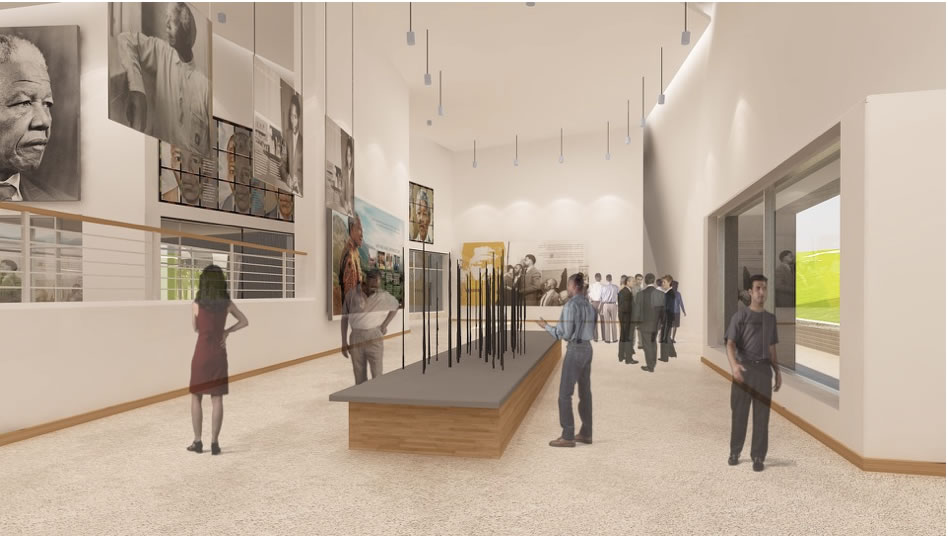 The early life of former President Nelson Mandela, his career as an attorney and his rise into politics through his involvement in the defiance campaign against unjust laws is a well-documented story that forms part of South Africa’s liberation struggle.
The early life of former President Nelson Mandela, his career as an attorney and his rise into politics through his involvement in the defiance campaign against unjust laws is a well-documented story that forms part of South Africa’s liberation struggle.
To add to this, monuments have been erected in his honour – from the Nelson Mandela Museum in Qunu, a stone’s throw away from where he received primary schooling, to his jail cell at Robben Island near Cape Town, where he, was jailed by the apartheid government for decades.
However, the site of his arrest at a roadblock near Howick in KwaZulu-Natal on 5 August 1962 – which set in motion events that led to the famous “Rivonia Trial” in October 1963 – has for years only been marked with a barely visible memorial plaque for years.
On 5 August 2012, a landmark sculpture was erected near the capture site along R103 in a project spearheaded by the Apartheid Museum’s director Christopher Till, in conjunction with the KwaZulu-Natal Department of Cooperative Governance and Traditional Affairs (CoGTA), to mark the 50th anniversary of Mandela’s arrest.
As the country commemorates the 100th anniversary since the birth of Nelson Mandela, a new museum will open its doors to the members of the public in September near the Nelson Mandela Capture Site to them a “360-degree view” of Madiba’s long walk – from his capture right through to the 1994 democratic elections.
Till, also started the Apartheid Museum in Johannesburg and said after convinced the local municipality and CoGTA to buy the farm adjacent the capture site. He then went back to convince the partners to build an accompanying museum and a visitor’s centre, which is a R65 million project.
“We managed to get money to build that new museum which is currently 98 percent finished. We have also created an exhibition to go into that space. It will be an interactive audio-visual kind of exhibition,” he said.
Going forward, Till said the museum has partners in the wings and that he was also looking for new partnerships to implement the third phase of the project.
“We also want to construct an amphitheatre and put in place a skills development training centre and a craft market where we will begin to engage the local community to bring activity and employment and transformation to that site,” he added.
Ngaleka’s magic ingredient is a booming business
Ngaleka’s magic ingredient is a booming business angenithaWhen Ntombifikile Ngaleka started planting vegetables in her yard she had no idea that one day she would own a farming business that supplies local shops and school feeding schemes.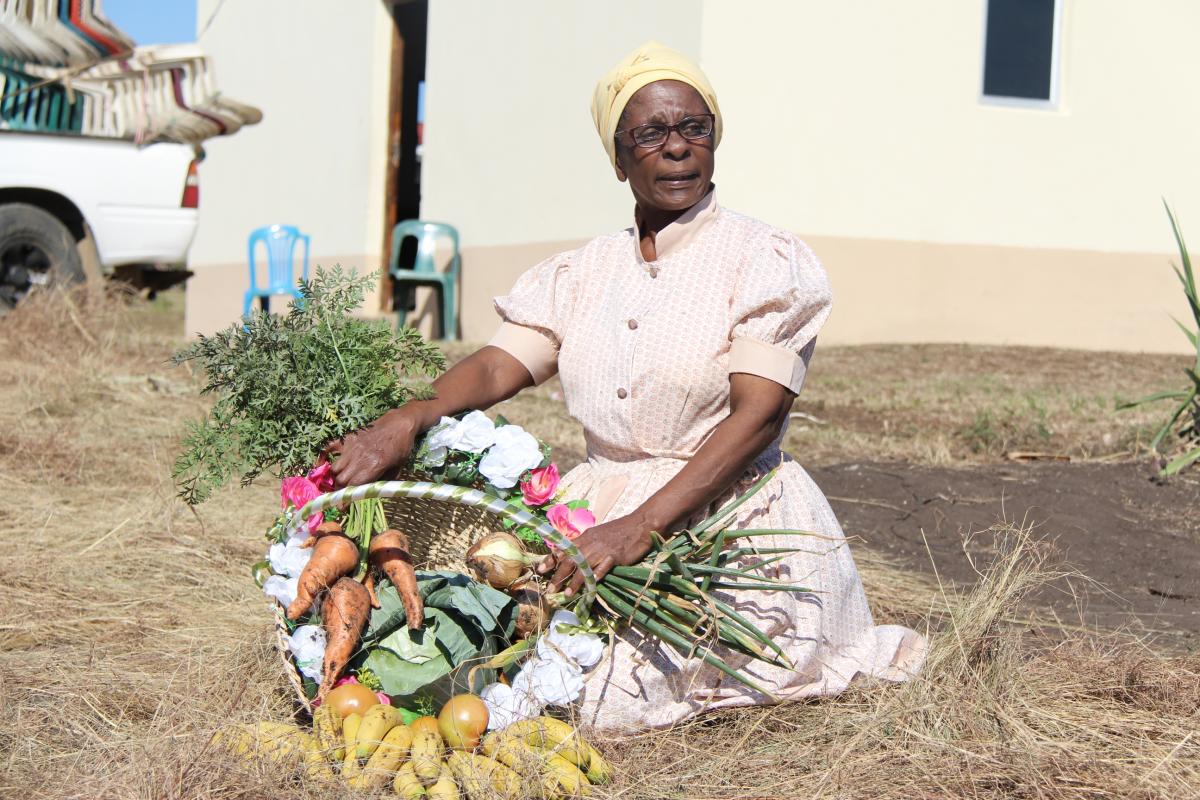
Ngaleka (67) is from KwaXolo in Port Shepstone, KwaZulu-Natal.
She farms spinach, cabbage, carrots tomatoes, onions sugar beans and bananas. Her business won the title of best substance producer in 2016 during the KwaZulu-Natal Department of Agriculture’s Female Entrepreneurs Awards.
Ngaleka said when she started planting vegetables, she wanted to help her family get fresh food but her passion drove her into business. She has also employed two local women to work on her farm.
“I am currently planting my produce on two hectares of land but it is not enough. People want my vegetables because I do not use chemical fertilizers. I use compost from cattle kraals,” she said.
Ngaleka a former teacher said she had a passion for farming while she was still working as a teacher at Gcilima Primary.
“I used to come back from school and go to the fields. I was obsessed with healthy eating. When I reached retirement age all I wanted to do was farm in my spare time.
“I started with spinach, cabbage and beetroot and sold it to the local clinic. Every day I would come back with all my stock sold. This motivated me to plant even more,” she said.
Ngaleka explains that vegetable farming has its challenges.
“Vegetables are not popular with many farmers because the weather needs to be perfect. It must not be too cold or hot,” she said.
Through the profits Ngaleka accumulated from her farming business she bought an additional three hectares of land where she will be planting tea trees.
“I have also found the market where I will supply the special trees. Tea trees make essential oil that heals skin problem such as rash.”
Ngaleka encouraged women to venture into farming especially since it has many benefits.
“You can do it in own yard and expand. The world is full of opportunities for women.”
Riding waves keeps children off the streets
Riding waves keeps children off the streets vuyelwanGliding on water is not just a sport or a fun activity for young people living within the Durban city centre in KwaZulu-Natal but it is also an escape from social ills.
Surfers Not Street Children is an organisation that provides free surfing lessons to street children and disadvantaged youth within the city centre.
The organisation is a direct response to tackling homelessness of children and ensures that the youth do something positive with their lives. 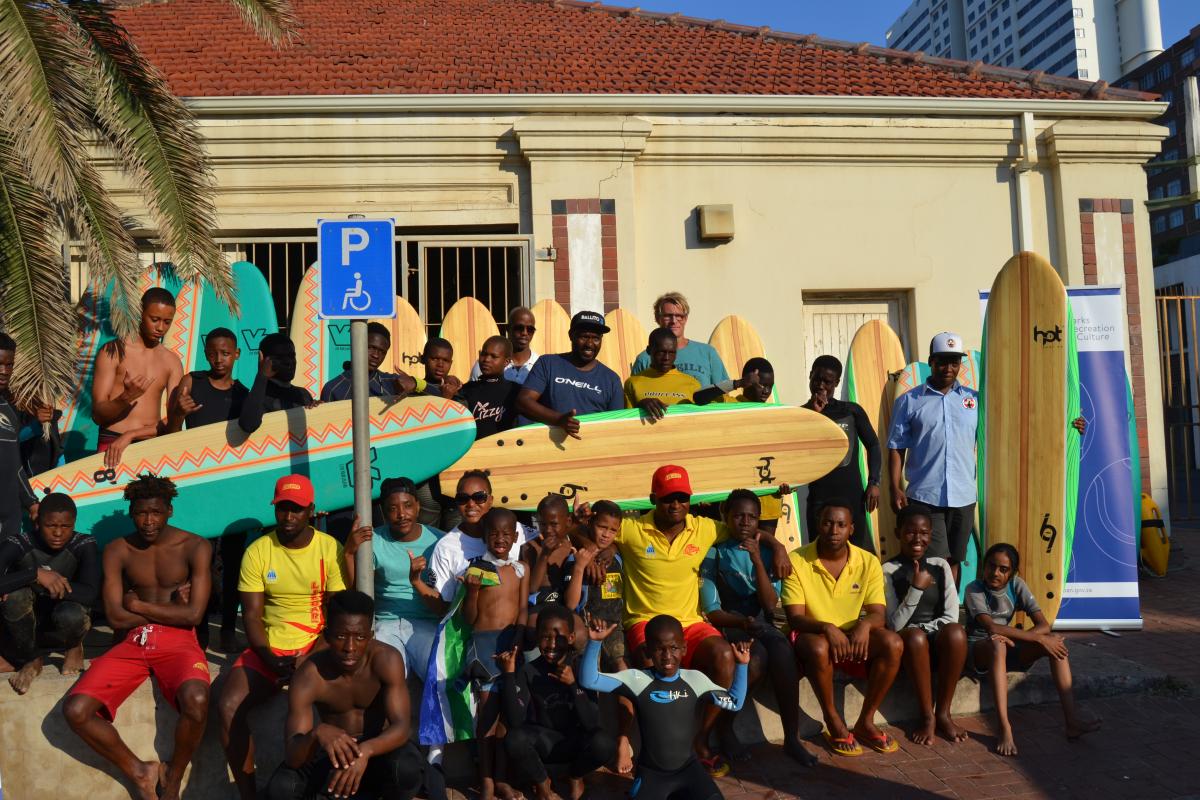
The eThekwini Municipality recently supported this organisation by donating 10 surf boards.
The boards are designed for development purposes and are made out of foam that help beginner surfers to stay above water level.
Manager of the municipality’s sport and recreation development department Teddi Adams said that the boards would assist aspirant surfers.
“The donation is part of the municipality’s strategy to develop sports and ensure that all youth, irrespective of race and class, have access to facilities that will help them to excel in their chosen sports code.”
Langelihle Nkosi (16) who is a surfer, thanked the municipality for the donation.
“I enjoy coming to the surfing lessons because they help me get fit and I enjoy riding the waves.” Nkosi encouraged other aspirant surfers to come and participate and learn more about surfing.
Sandile Mqadi surfing coach of the Surfers Not Street Children Club, said that the organisation was mainly aimed at teaching children surfing skills as a means to get them off the streets.
“We mainly cater for street children and those from previously disadvantaged communities. Our services are free and youth from the ages of five to 23 are welcome,” said Mqadi.
He added that the boards donated by the municipality will assist their efforts and more children will be able to take part in the programme.
“Although we appreciate all the assistance we receive, we would like to see more surfing events being organised where the youth can participate and get to expose their skills to an audience,” he said.
The Surfers Not Street Children Club offers surfing lessons from Monday to Friday at 08h30 and again at 13h30. Interested participants can register at the Surfers Not Street Children Office at North Beach.
The municipality also donated another 10 surfboards to the KwaZulu-Natal Surfing Federation.
Silahliwe’s guardian angel
Silahliwe’s guardian angel LondekileWomen's Month
Silahliwe, meaning abandoned, is an informal settlement located near Bethlehem in the Free State.
It is characterised by unemployment and poverty. The only beacon of hope for many is the Mapojotana Co-operative, founded by retired teacher and community builder Pontsho Mokoena in 2012.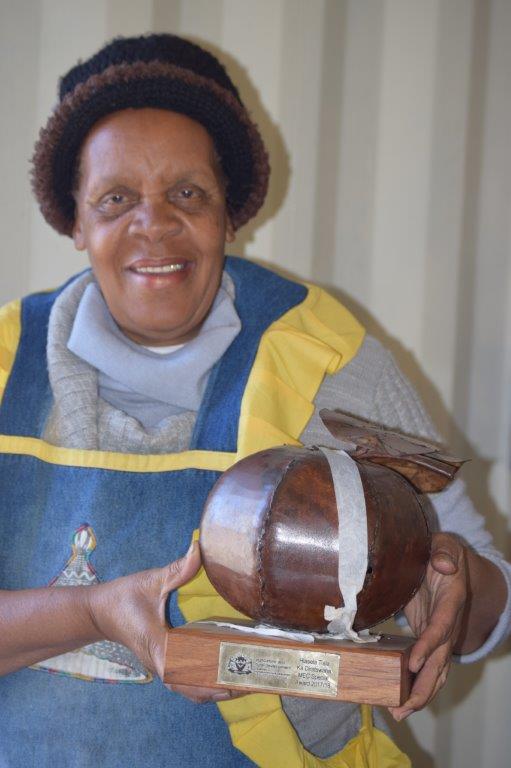
The co-operative is a food security programme that grows vegetables and provides nutritious meals daily to about 400 residents of Silahliwe as well as neglected and frail elderly persons in the community.
Nkgono Pontsho, as she is fondly called, started the programme using her pension money after she retired in 2011. She recruited an additional four former teachers who, in some instances, also contributed their meagre resources to the project.
“I still felt young and did not just want to sit at home. I already had a passion for food gardens and believe that no one should go hungry when there is a little bit of land to grow on,” she said.
At the time, there was a call by the Department of Health for communities to assist with setting up soup kitchens.
“We decided to join the programme because we had a thriving garden by then and we were already feeding poor people. The land we are on used to be a dumpsite but with the help of the community, we have turned it into this beautiful sanctuary that welcomes everyone.”
On site is a vegetable garden, feeding hall, kitchen, sewing room, office and a crèche to look after the children of Silahliwe.
Mapojotana Co-operative is in the process of registering the crèche to meet all Early Childhood Development (ECD) requirements.
The three teachers have already completed the basic ECD training that was provided by the National Development Agency (NDA) in partnership with Tshepang Educare Centre.
NDA funding has also made it possible for identified local youth to receive basic computer training.
Mapojotana Co-operative currently employs 29 people and has 12 volunteer workers.
Over the years, Mapojotana has received many awards, the most recent being one from the Department of Agriculture and Rural Development for Best Community Nutrition Development Centre 2017/18.
This month in history
This month in history Ursula1 August 1936: The SABC is formed
In 1934, the prime minister of South Africa General James Barry Munnik (JBM) Hertzog ordered an official investigation into all aspects of broadcasting in South Africa. The investigation ultimately led to the formation of the South African Broadcasting Corporation (SABC), under Act 22 of 1936.
The broadcasts of the African Broadcasting Company (ABC), which was formed in 1927, ceased and the broadcasts from the newly formed SABC began.
At first the SABC broadcasted only in English. However, the Act stipulated the inauguration of a parallel Afrikaans service.
In 1937, comprehensive transmissions in both official languages became a reality as the "A and B Programmes" were developed and transmitted.
(Sahistory.org)
UIF brings service to ex-mineworkers
UIF brings service to ex-mineworkers UrsulaFormer mineworkers from across Lejweleputswa District and neighbouring towns in the Free State are given a chance this month to claim for their Unemployment Insurance Fund (UIF) benefits at their doorstep.
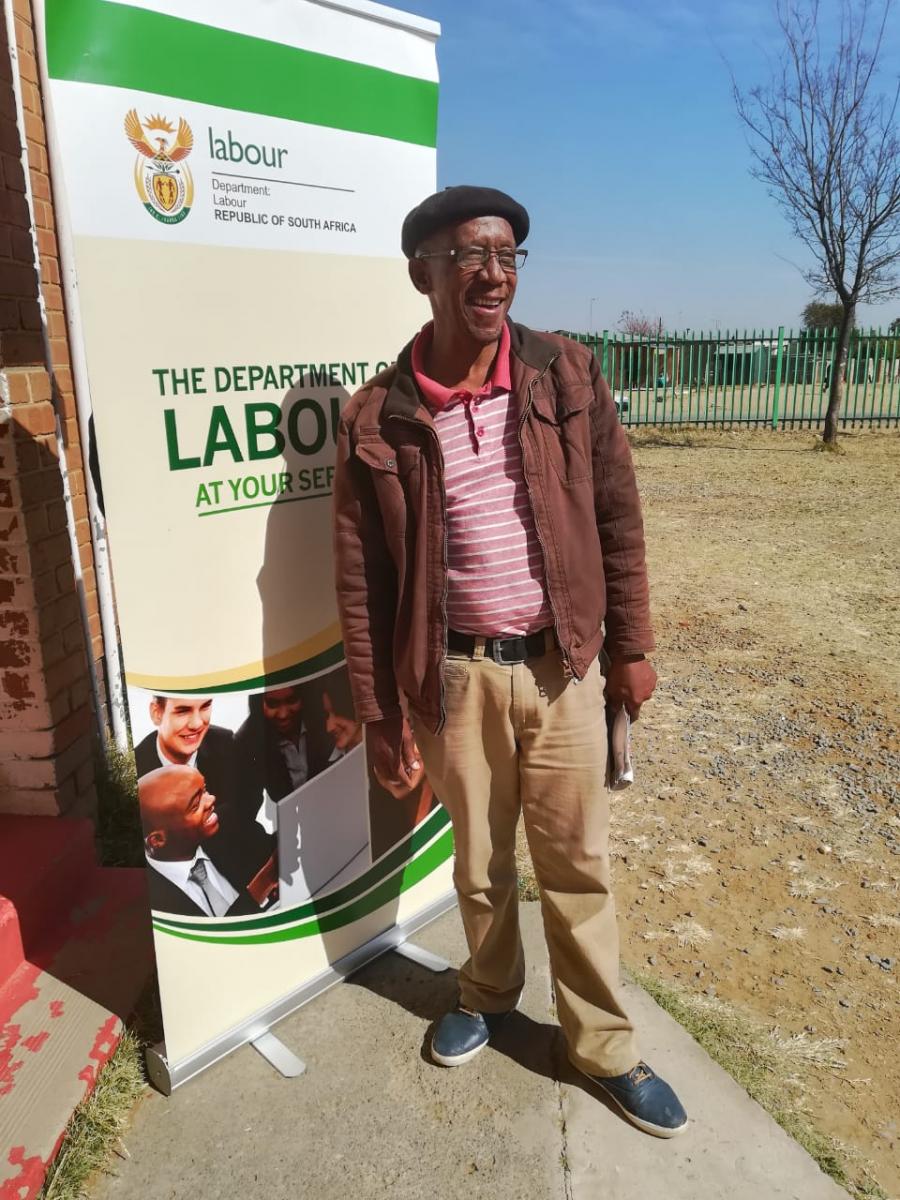 This is made possible by a month-long campaign for the payment of benefits to former mineworkers spearheaded by the Department of Labour and the UIF.
This is made possible by a month-long campaign for the payment of benefits to former mineworkers spearheaded by the Department of Labour and the UIF.
Lejweleputswa District Municipality is the mining hub of the province and a large number of people from other parts of the Free State and neighbouring Lesotho flood the municipality in search of jobs.
Thebe Matlhakwane (59) is a former mineworker from Meloding in Virginia who submitted his claim on the first day of the campaign.
He worked for a mining company in Lejweleputswa between 1986 and 1996. Matlhakwane said working in the mines was difficult especially since black people had limited opportunities because they lacked education.
Matlhakwane said he has been struggling to claim for his UIF benefits because he stays far from the Department of Labour’s offices.
“I am happy that the department’s officials made time to visit our towns,” he said.
It took him about 20 minutes to complete his submission. The provincial Department of Labour spokesperson Josial Ramokoena said UIF officials will be assisting claimants from 1 August until the end of the month in a number of towns in and around the district.
He said the plan is to ensure that the officials take applications from eligible claimants who are yet to claim their UIF benefits.
“The claims are for unemployment benefits which were not paid to the ex-mineworkers due to reasons beyond their control,” he explained.
“This special project is only earmarked for ex-mineworkers who left their employment prior to April 2001,” he added.
The documents that are recieved include a stamped reference book (old identity document), employer cards or mine ID card (Makhuluskop), pay slips, old blue cards, record of service, Teba bank record or IRP5.
Claimants can visit the following venues to submit their claims:
• Welkom - Thabong Indoor Sports Centre – from 13 to 16 August between 9am and 4pm
• Odendaalsrus - Kutlwanong Community Hall – from 20 to 24 August between 9am and 4pm
• Welkom - Thabong Indoor Sports Centre – from 27 to 31 August between 9am and 4pm
Ramokoena said the campaign has already assisted about 3 300 claimants in other parts of the province including Motheo and Xhariep Districts.
Unsung heroes of the 1956 Women’s March
Unsung heroes of the 1956 Women’s March angenithaWomen's Month
Whilst South Africa’s history pages record the iconic 1956 Women’s March, which was co-ordinated by the Federation of South African Women and led by Lillian Ngoyi, Helen Joseph, Rahima Moosa and Sophie Williams–De Bruyn, they tell little of the other women who fought for women’s rights and freedom.
Vuk’uzenzele brings some of these women’s stories to light.
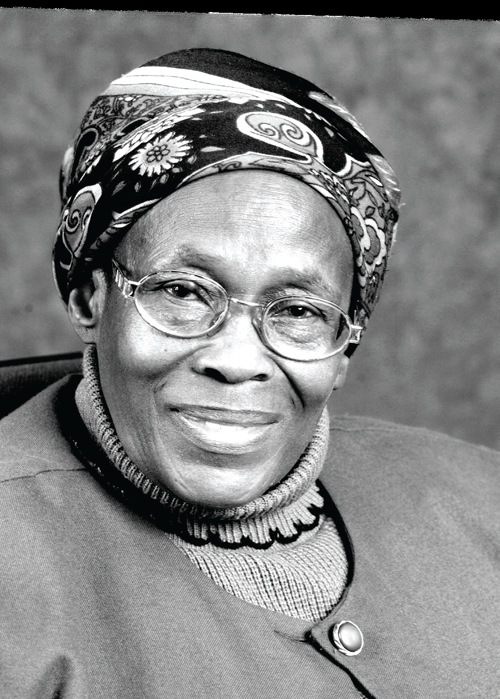 Rita Ndzanga
Rita Ndzanga
Rita dedicated her life to seeking freedom for the women of South Africa.
Born on 17 October 1933 in Mogopa, 16 km from Ventersdorp in the North West, her first job was as a secretary for the Brick and Tile Workers Union in 1995. The same year, she went to work for the Railway Workers Union with her husband, Lawrence.
The couple belonged to an underground cell and were banned in 1964. They were detained on 12 May 1969, under Section 6 of the Terrorism Act, and Rita was in prison with Winnie Madikizela-Mandela, Thoka Mngoma, Martha Dlamini and Joyce Sikhakane. Upon her release in 1970, she was banned for another five years.
Neither the torture of detention or the death of her husband, in detention in January 1977, deterred her continued involvement in the trade union movement.
The Federation of Transvaal Women was formed in December 1984, bringing together close to 200 women from all over Gauteng. Sister Bernard Ncube was elected as the first president of the federation, while Rita, Albertina Sisulu, Francis Baard and Maniben Sita were elected as active patrons. Helen Joseph and Madikizela-Mandela were non-active patrons.
In 1999, Rita was elected as a Member of Parliament in the National Assembly. She served in the first, second and third democratic Parliament and was awarded the Order of Luthuli by President Mbeki in 2004.
Frances Goitsemang Baard
Frances was born on 1 October in 1909 in Kimberley, Northern Cape. She worked as a domestic servant and then as a teacher, but became militant as a result of her experiences of oppression and exploitation in South Africa.
She was actively involved in the drafting of the Freedom Charter and one of the leaders of the Women's March and, in 1956, was one of the defendants in the Treason Trial. Francis was a trade unionist, organiser for the African National Congress Women's League and a Patron of the United Democratic Front.
The Frances Baard District Municipality and Schoeman Street in Pretoria were renamed in her honour. She took her last breath on 2 June 1997.
Annie Clorence Peters
Annie was born in 1920 in Heidedal near Bloemfontein. Her political activity started when she protested against the Bantu Education System, whilst still at school.
She left school at 16 and moved with her mother to Sophiatown, where she worked as a tap-dancer whilst defying apartheid legislation and helping to mobilise women from the then Orange Free State to take part in the march.
After forced evictions in Sophiatown, Annie moved to Meadowlands. She later returned to Bloemfontein, where she worked at Oranje Mental Hospital. Annie, who passed away in 2007 at the age of 87, continued to advocate for racial freedom throughout her life.
Nosipho Dastile
Nosipho was born in 1938 in Uitenhage. After completing her education, she worked as a community activist in the area and volunteered as a teacher at the Roman Catholic Mission School. She later moved to the Little Flower Primary School, where she worked as a full-time teacher.
During the high tide of political activism in South Africa, after the institutionalisation of Apartheid, she became active in politics and was one of the founding members of the United Democratic Front in Uitenhage.
Her political activism grew and she was elected as the inaugural president of the Uitenhage Women’s Organisation. Soon after the unbanning of political parties and exiled freedom fighters constituting the liberation movement in 1990, Nosipho was elected as the chairperson of the African National Congress Women’s League for the Uitenhage region.
In 1994 she was elected as the first councillor under the banner of the new democratically constituted Uitenhage Transitional Local Council. She later left politics due to an illness but continued to volunteer as a teacher at the Ruth Dano crèche in Uitenhage. Nosipho passed away in May 2009 at the age of 71.
Valentine's love for science communication
Valentine's love for science communication angenithaValentine Saasa (27), a PhD candidate at the Council for Scientific and Industrial Research (CSIR), not only wants to make an impact on society but wants to help others do so too.
Born and raised in rural Botlokwa in Limpopo, Saasa attended Letheba High School before obtaining a Bachelor of Science degree in 2011 and a Biochemistry Honours degree in 2012, both from the University of Limpopo where she specialised in medicinal plants extraction for diabetes mellitus management.
She obtained her Biochemistry Master’s degree (cum laude) in 2016 from the University of Johannesburg, with the CSIR as a sponsor. Her thesis focused on developing a technology to monitor blood glucose without using needles.
“We were using human breath, instead of blood tests, to measure the amount of acetone a human emits,” said Saasa, who explained that diabetes mellitus is a metabolic disease caused by insulin deficiency.
“Insulin is a hormone that converts the food we eat, such as starch, to usable energy. When insulin is not at work, as in the case of diabetes, the body produces ketone bodies such as acetone.
“Acetone is a molecule produced by diabetic patients when they have high blood glucose to compensate the energy-demanding organs and tissues, such as the brain. That’s why we used human breath to detect acetone and correlate it with blood glucose,” she said.
The project went well. “The results showed an above 70 percent correlation between breath acetone and blood acetone.”
“I am also interested in making sure that patients monitor their disease with a cost-effective and pain-free device, which only requires their breath.
When it comes to her job, Saasa says that every day is an opportunity to learn new things. “I don’t consider it a job but a place where I can increase my intellectual capacity and learn from great people,” she said.
This Women’s Month Saasa urges women to seek opportunities in research. “When an opportunity presents itself, work twice as hard as your male counterparts. The universe recognises and rewards women who work hard in this field, which was previously
What will the colleagues say?
What will the colleagues say? vuyelwan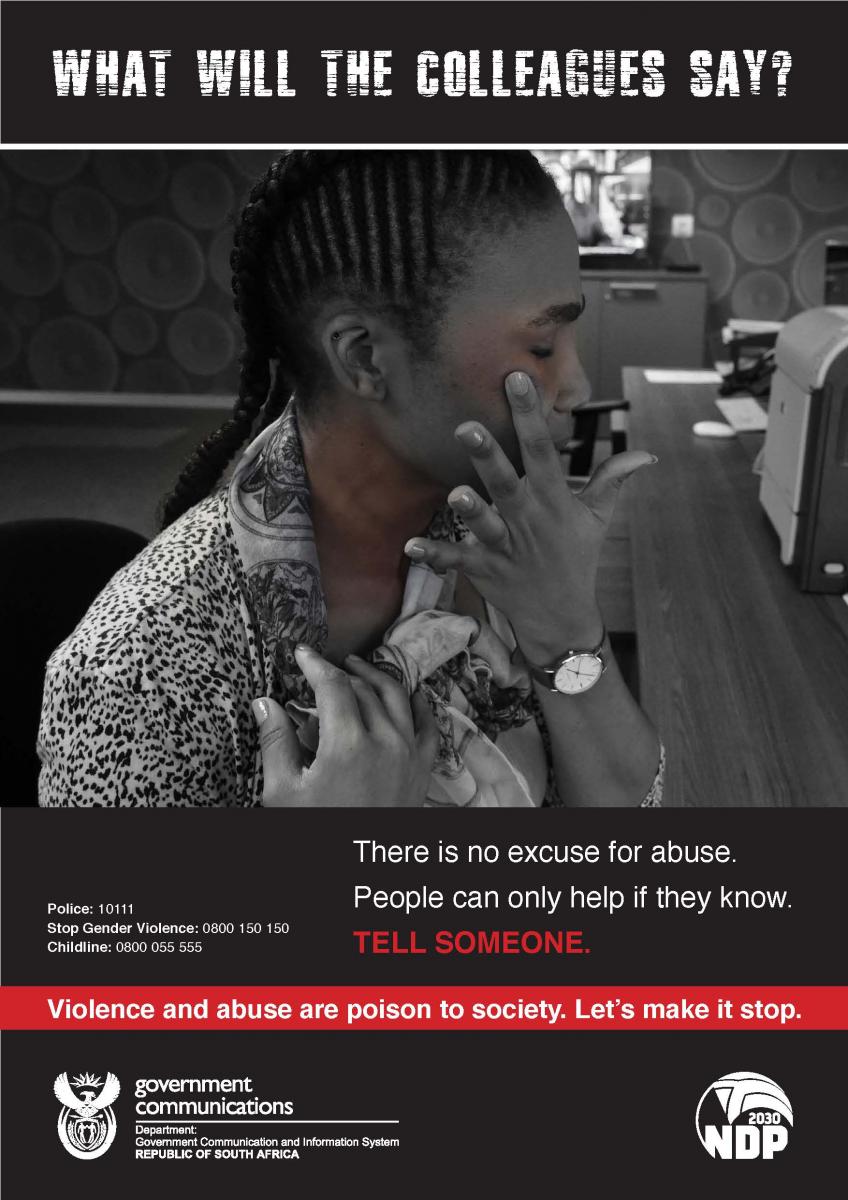
Yolisa beading her way to success
Yolisa beading her way to success tsoanaA love for creativity has led Fuma to establishing a thriving business.
Yolisa Fuma has walked a remarkable road from living in poverty in the Eastern Cape, to discovering a passion for arts and crafts and now running her own workshops to share her skills with unemployed women.
Fuma was born in a township outside Queenstown in the Eastern Cape, sharing a small house with 15 family members.
“My family did not have enough money to send me to school. Without an education, I had to find my own way to make an income,” said Fuma. 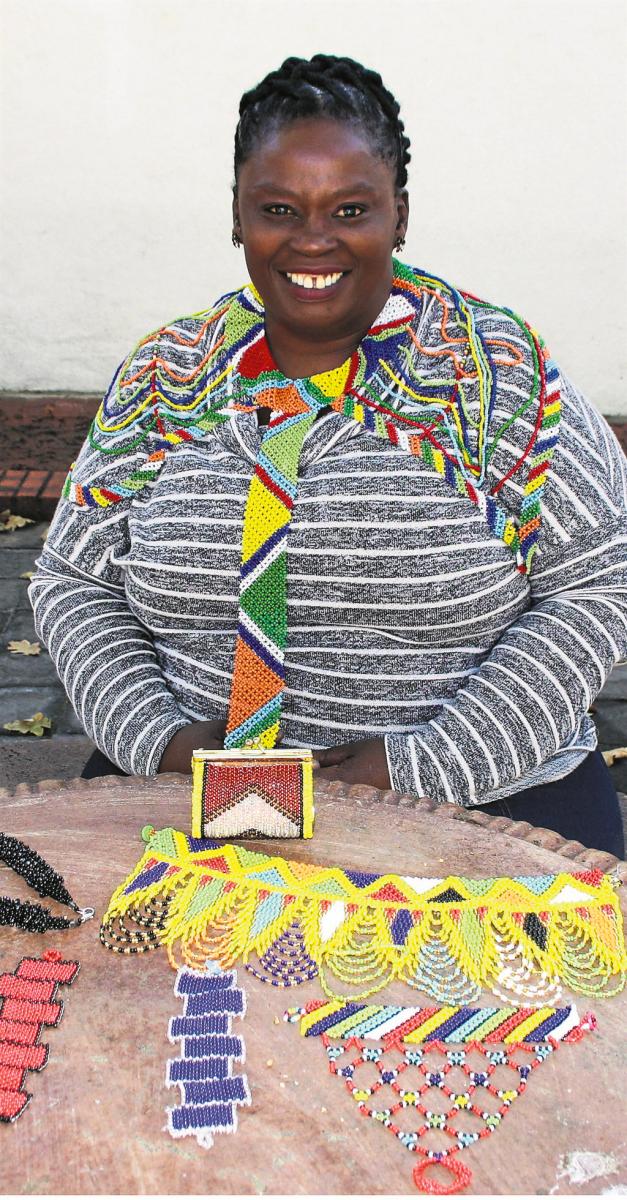
She spent many hours learning to crochet and moved to Cape Town to live with her sister. Fuma then taught herself to do beadwork, and moved to Mbekweni in Paarl in search of greener pastures.
“There were many people who were asking for beadwork. So I looked at a few bead products and took them apart step-by-step to find out how they were made. I then taught myself to make my own products and began selling them from the Ikwezi Centre in Paarl,” she said.
Fuma was one of the 20 emerging crafts producers to be selected by the Drakenstein Local Municipality and the Drakenstein Local Tourism Association (DLTA), to attend a four-day training programme hosted by the Craft and Design Institute (CDI).
The programme taught participants to produce samples of market-relevant products that would help the crafters to develop their own businesses.
“The workshop taught us how to develop our own business plans. I am very thankful for the opportunity, as I will be able to grow my business,” Fuma explained.
Her beaded and crocheted products have now been bought by customers Germany and Sweden.
“It has been difficult at times, but with the support of the CDI and the municipality, I have been able to start making some money and supporting my four children. Many of my dreams are being realised,” said Fuma.
She decided that she wanted to pass her knowledge and skills on to unemployed women in the area, so that they could also start generating the income they needed to support their families.
“I am currently running workshops in my house to train three other women who don’t have jobs. I am hoping that I will soon be able to employ them
in my business,” Fuma said.
